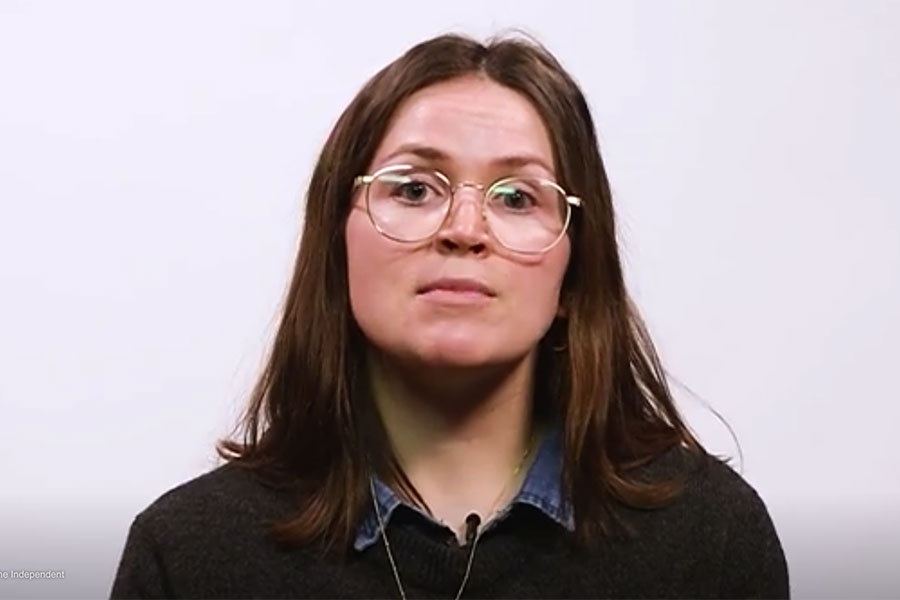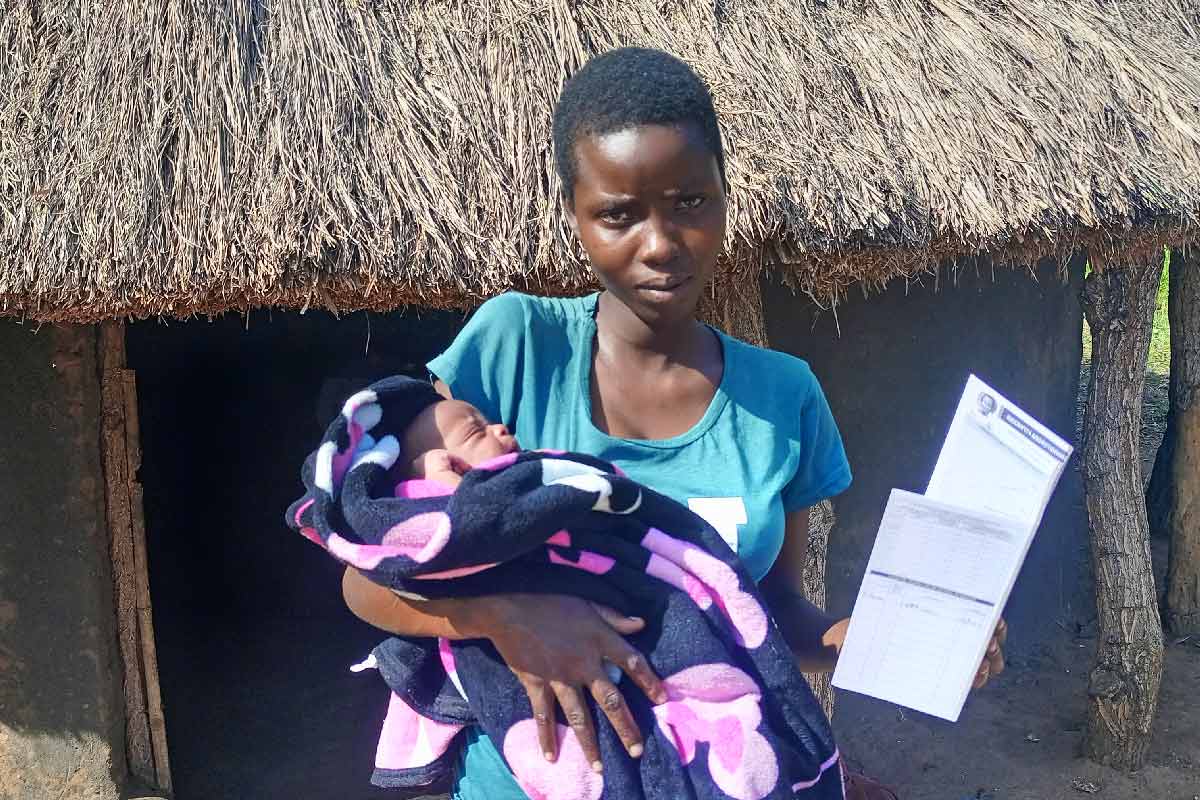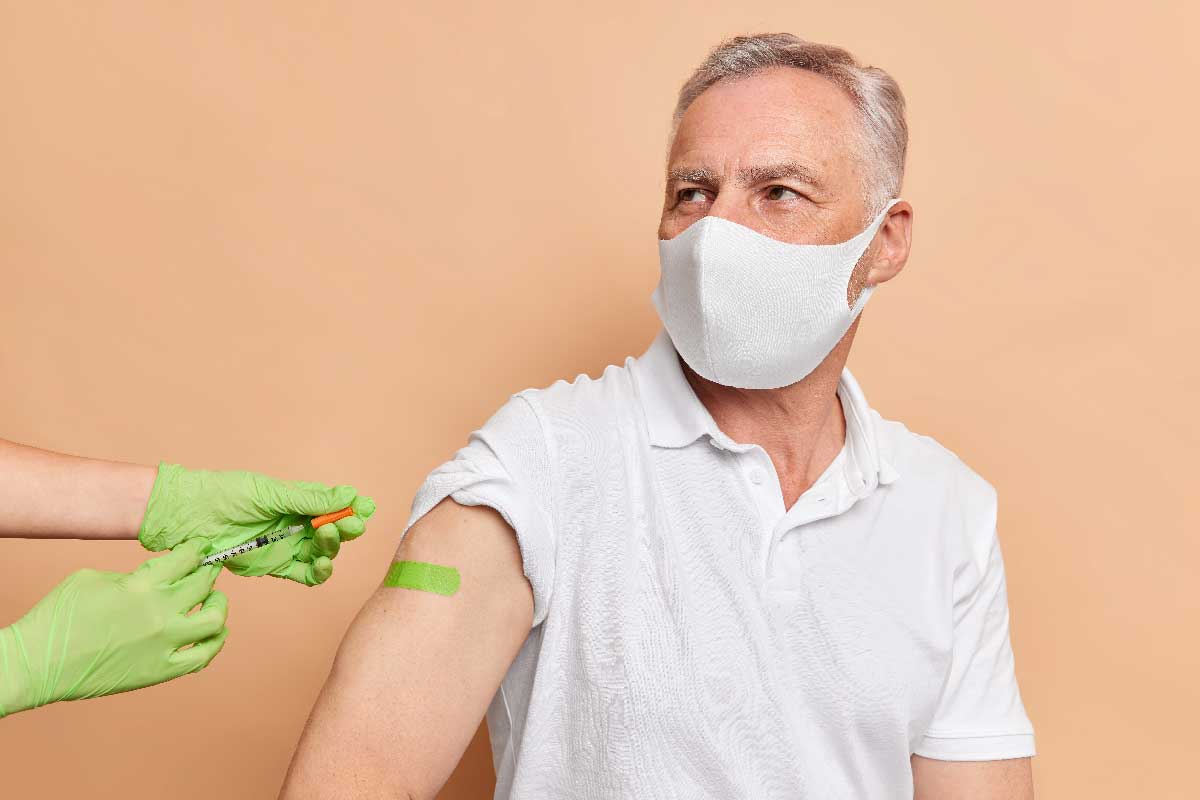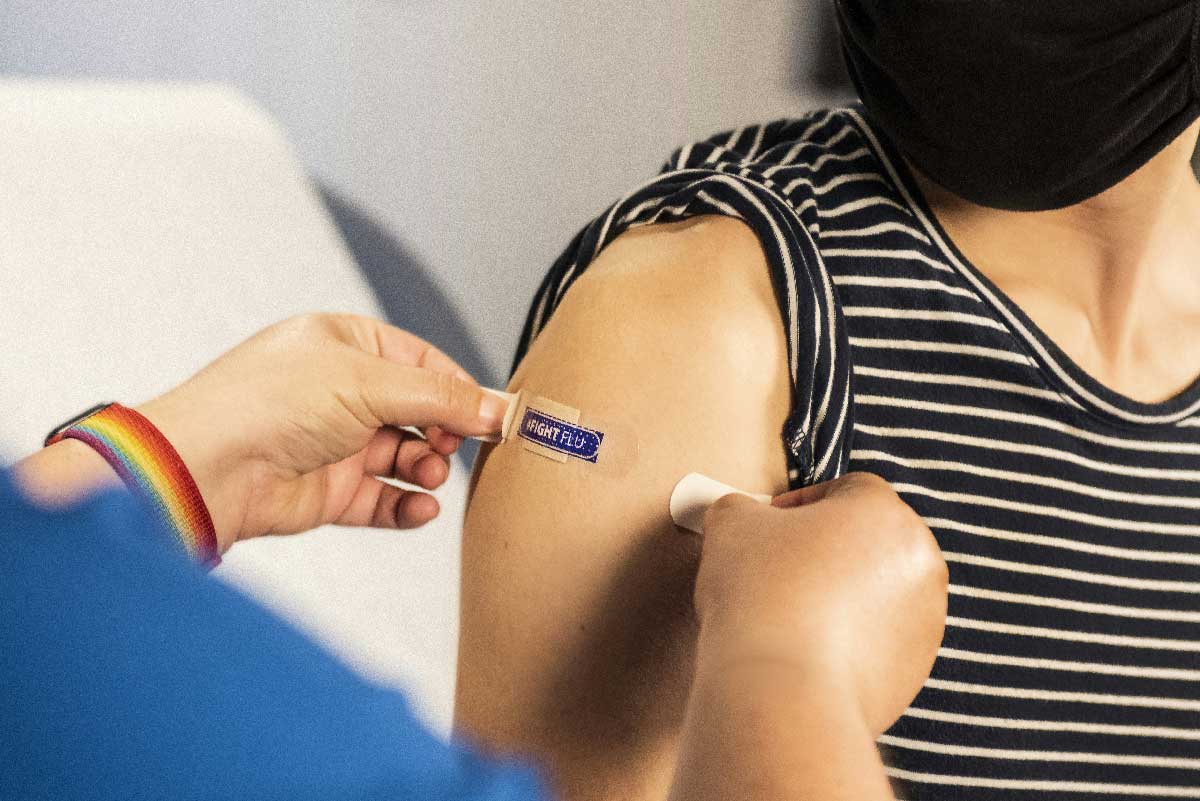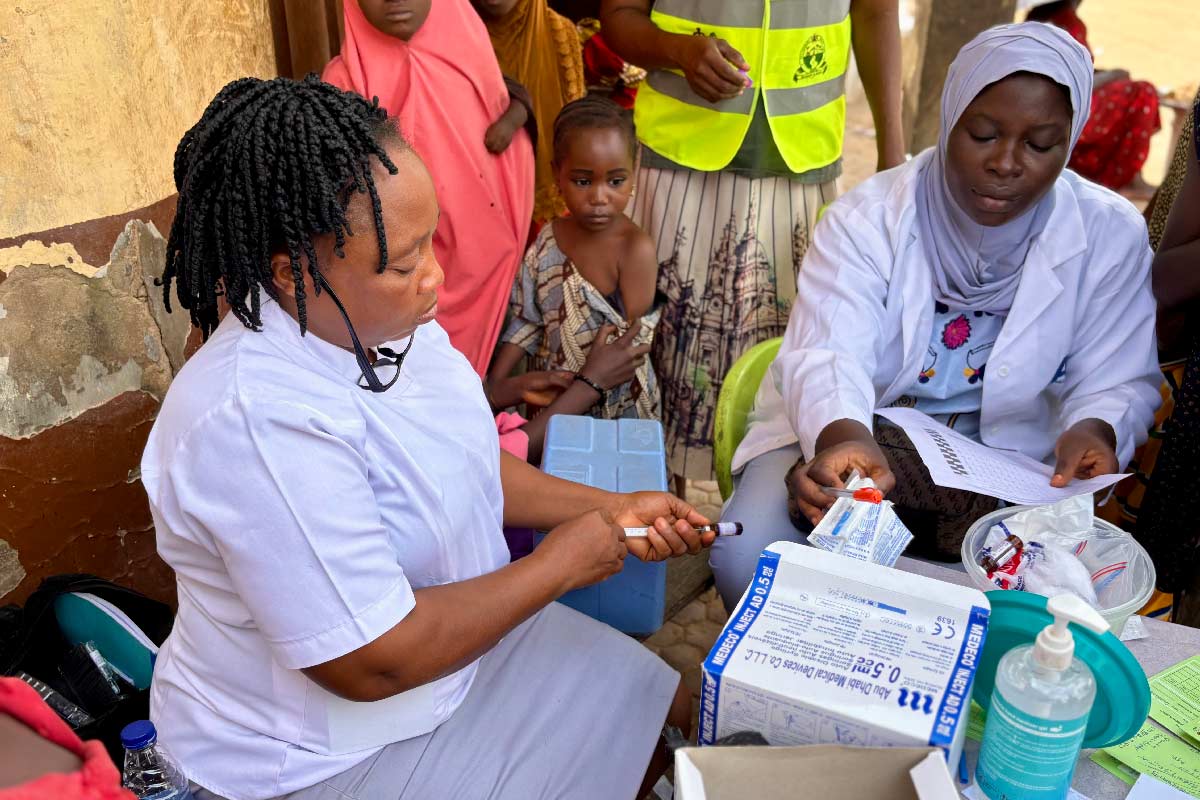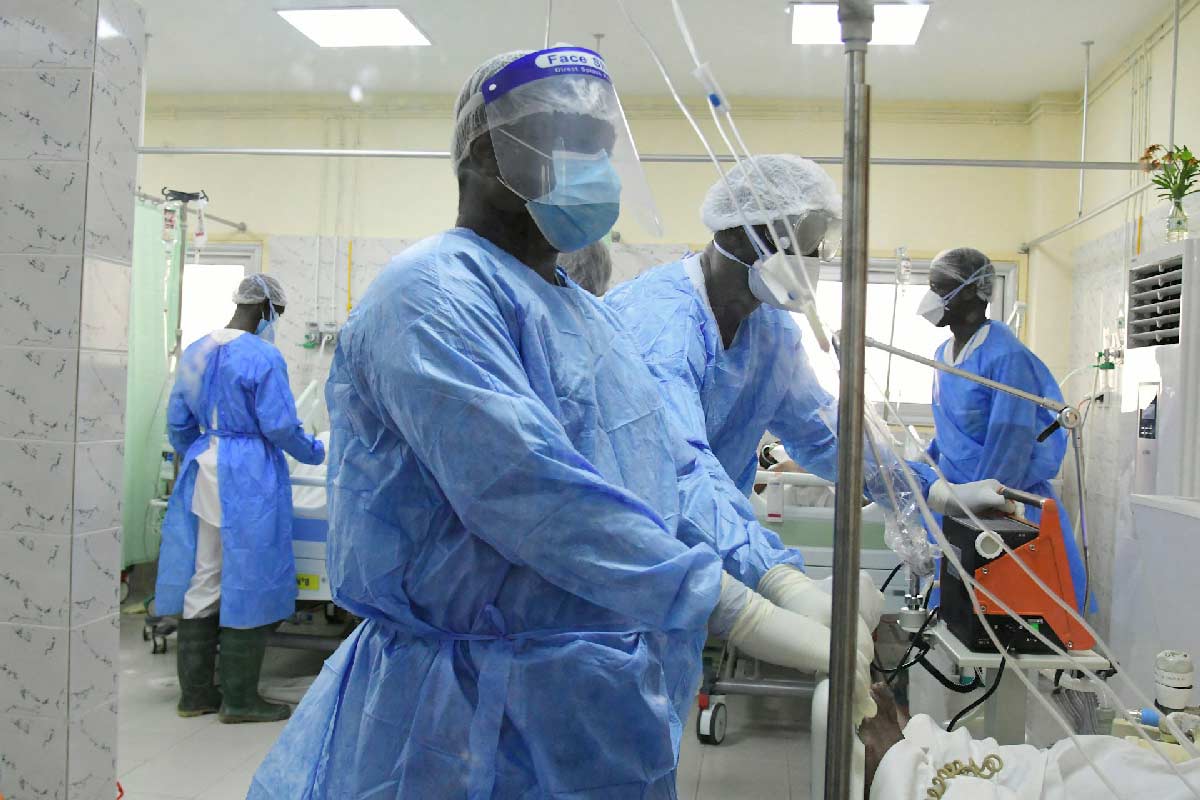COVID-19 News in Brief
- 14 April 2020
- 23 min read

14 April 2020
Two more coronavirus vaccines to enter human trials
China has approved two more COVID-19 vaccines for early-stage human testing. There are now three vaccines being tested in China, with the first one approved earlier in the year now entering the second phase of human trials.
![Image credits: Scientists around the world are racing against time to develop a coronavirus vaccine [Thomas Peter/Reuters] Image credits: Scientists around the world are racing against time to develop a coronavirus vaccine [Thomas Peter/Reuters]](/sites/default/files/body/2020-04/2c03cbd0b7c64db8bcdbac65c3d8d5f3_18_3x2.jpg)
Students in Tunisia are printing PPE
Students at the National School of Engineering in Sousse, Tunisia, are using 3D-printing technology to produce face masks. They can now make an average of 300 a day, which they hope to distribute to hospitals across the country.

Could a decades-old vaccine help fight COVID-19?
Scientists in Australia and the Netherlands are testing whether the BCG vaccine also helps protect against COVID-19. Although developed as a vaccine against tuberculosis (TB), it has previously been shown to be effective against leprosy thanks to its broad immune system boosting properties.
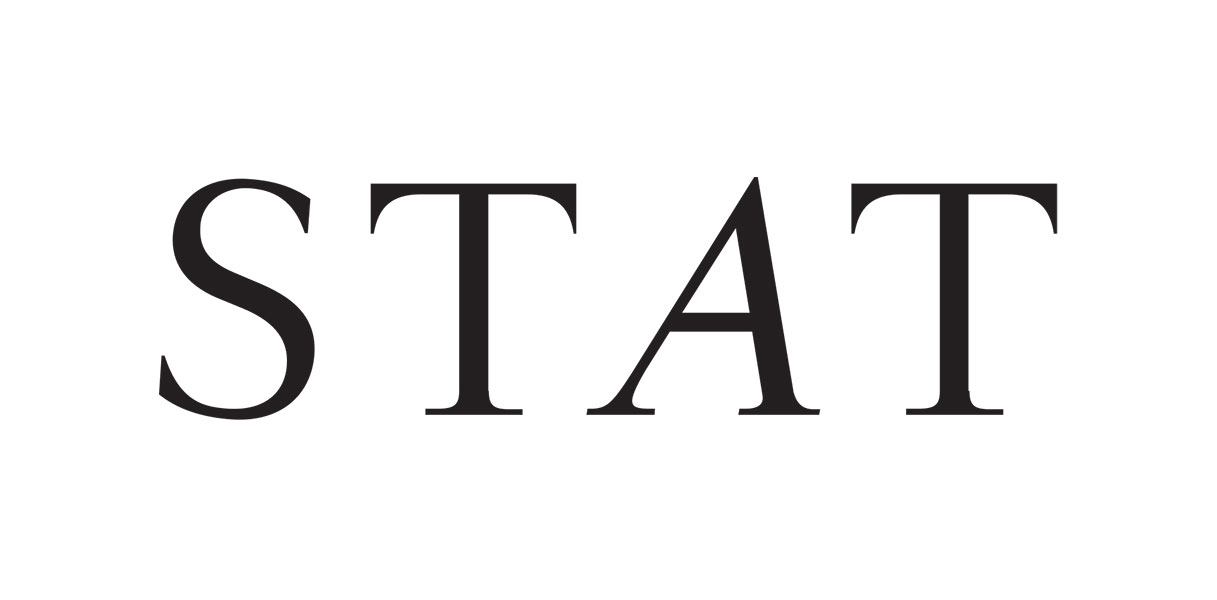
9 April 2020
Coronavirus could push half a billion into poverty
Up to 600 million people worldwide could be driven into poverty as economies shut down to stop the spread of COVID-19. This is according to a new report by Oxfam, which suggests that advances in development could be pushed back 30 years in parts of sub-Saharan Africa, the Middle East and North Africa. The findings also indicate that by the time the pandemic is over, more than half of the world's 7.8 billion people could be living in poverty. The NGO is calling on the International Monetary Fund to issue US$ 1 trillion as a one-time stimulus to help low- and- middle-income countries provide economic aid packages to assist businesses and workers.

Low- and middle-income countries losing out on COVID-19 supplies to richer ones
In the global race for products and chemical reagents needed in the fight against COVID-19, it is each country for themselves – with the richer ones having the financial muscle to stay ahead. The supply chain for testing kits and masks has shifted so that manufacturers are sending everything to Europe and North America, leaving little for Africa and Latin America. The access to reagents and other equipment is following basic market principles – when there’s a short supply of something, the price goes up, as does the waiting time.

COVID-19 pandemic leads to a surge in fake medicines
Counterfeit and substandard medicines have long-threatened the fight against diseases such as malaria. Now, the production of dangerous counterfeit drugs, supposedly to fight the new coronavirus, and the supply of substandard face masks and other equipment, is rising across Asia and Africa. Suppliers of fake medicines seem to be capitalising on the fact that China and India, the two biggest producers of medical supplies, are in lockdown. WHO estimates that the selling of medicines that are contaminated, contain the wrong or no active ingredient, or are out-of-date, is worth more than US$ 30 billion in low- and middle-income countries.

8 April 2020
Measles and polio cases expected to rise in Pakistan as COVID-19 disrupts immunisation
Experts in Pakistan are worried about the impact that the disruption to immunisation caused by COVID-19 will have on already low immunisation rates. Cases of measles and polio are on the rise in the country.

COVID-19 cases in Africa exceed 10,000
WHO’s Regional Director for Africa, Dr Matshidiso Moeti, argues that we need to ensure that communities have the resources and expertise to tackle this disease at the local level.
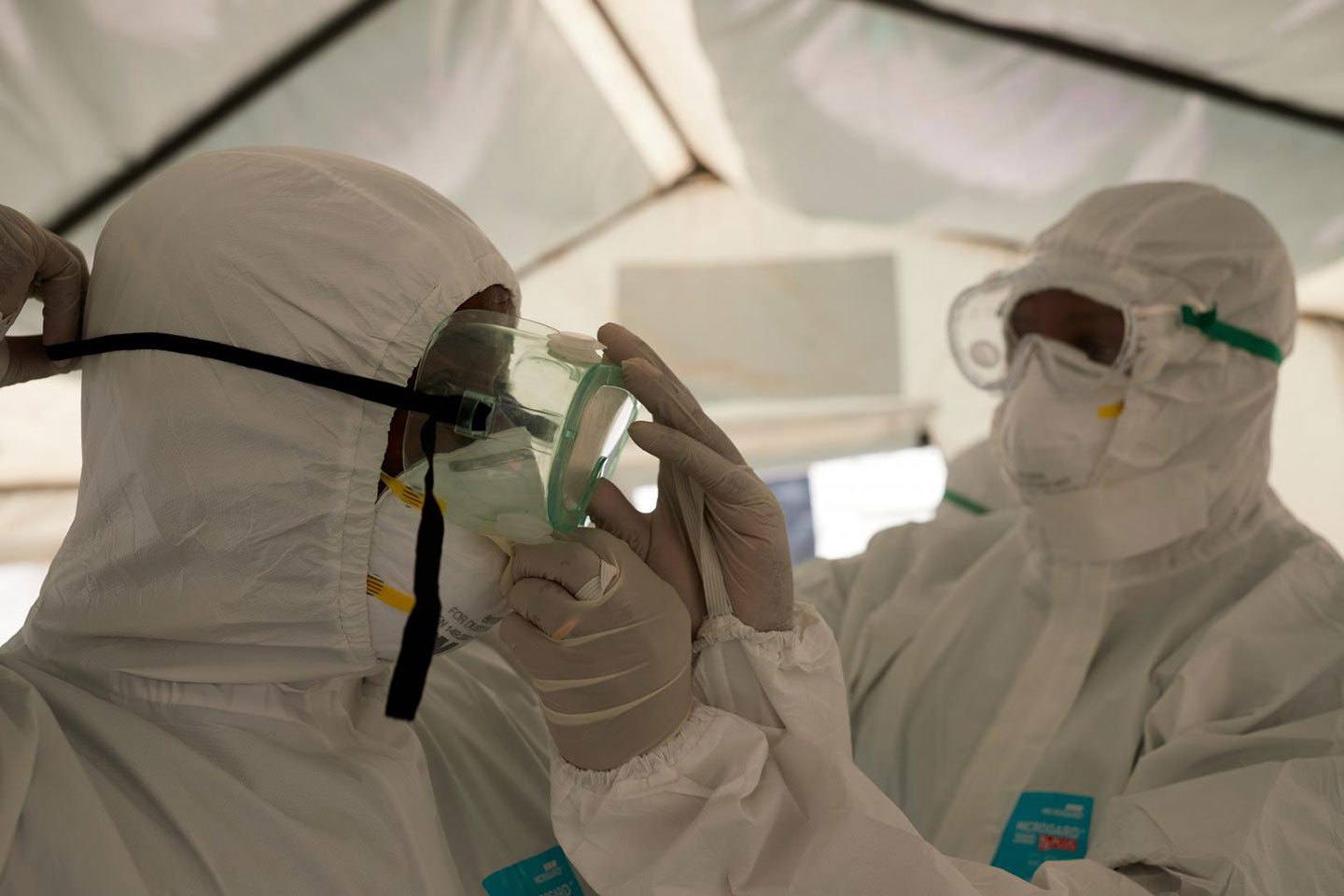
School closures in Ghana reveal inequalities in the education system
Less than half of the population have mobile phone internet access, meaning online teaching is not a viable option for many families.
![Image from Aljazeera article – Pupils gather around their teacher in class in Prestea, a mining town in southwest Ghana [File:Siphiwe Sibeko/Reuters] Image from Aljazeera article – Pupils gather around their teacher in class in Prestea, a mining town in southwest Ghana [File:Siphiwe Sibeko/Reuters]](/sites/default/files/body/2020-04/f35ec9f3f45c4926ab5b37a79bd2f4d2_18_h2.jpg)
7 April 2020
Locusts
In East Africa, the disruption of supply chains due to COVID-19 is impacting efforts to tackle another threat: a swarm of locusts. If current control operations fail, four million people could face food shortages.
![The Food and Agriculture Organization of the United Nations has secured about $111m of funding towards fighting the locust swarms [Baz Ratner/Reuters] The Food and Agriculture Organization of the United Nations has secured about $111m of funding towards fighting the locust swarms [Baz Ratner/Reuters]](/sites/default/files/body/2020-04/fbac1f6a0c004dfc990fc86a65d53c46_18_h2.jpg)
Ventilators
Dr Matshidiso Moeti, WHO’s Regional Director for Africa, warned that there is an enormous gap in the number of ventilators needed on the continent.

Letter to the G20
In a letter to the G20, global leaders have called for increased funding and debt relief to help the world’s poorest countries respond to COVID-19. Without immediate action, more than 1.2 million people could die of COVID-19 in the world’s poorest countries.
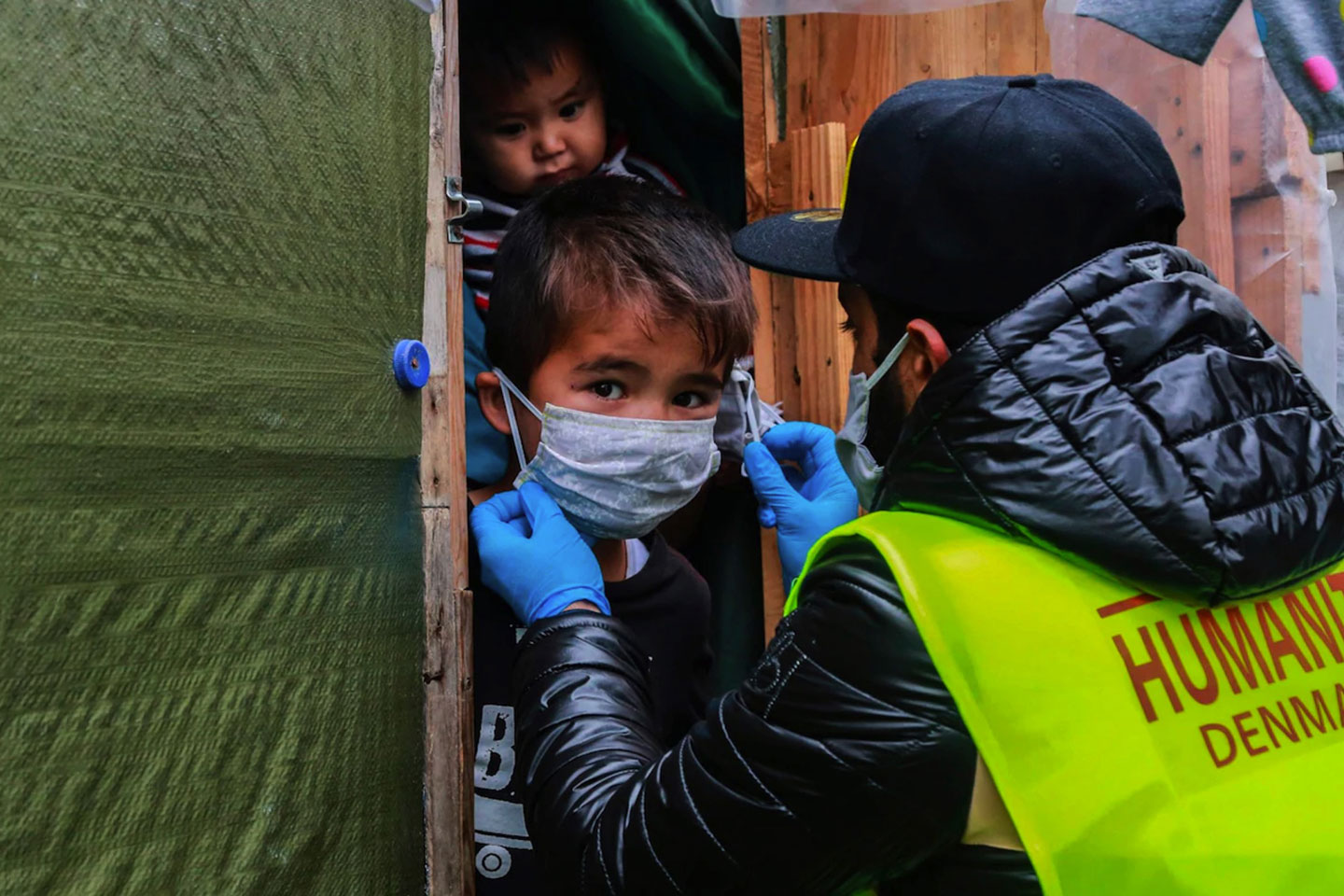
6 April 2020
Africa’s reliance on informal workers makes COVID-19 lockdown challenging
In African countries such as Kenya, Nigeria and Zimbabwe, informal workers and small-scale traders are still trying to run their businesses despite full lockdowns in place. Informal traders that rely on cash-based business, such as street vendors selling fruit and vegetables, and barbers or carpenters make up more than 40% of many African countries’ GDP. Many of these people make house calls or ask customers to come to their home, despite the quarantine, as without savings or other forms of income, they feel they have no alternative.
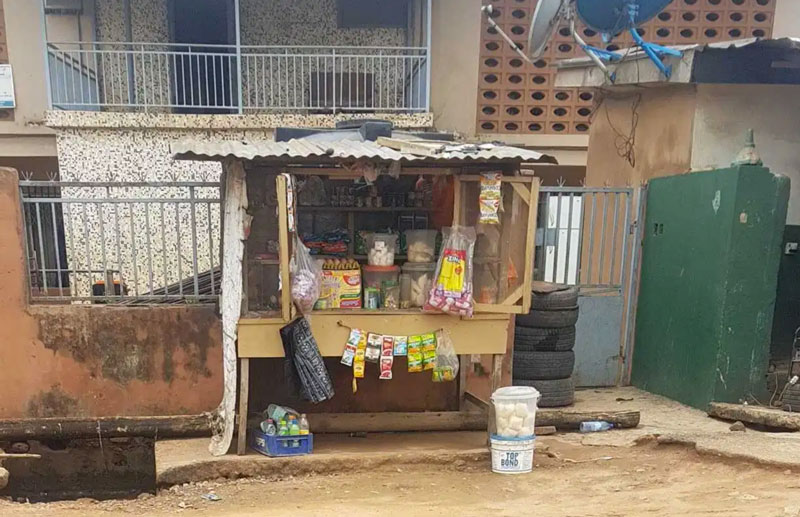
China sees rise in asymptomatic cases of COVID-19
China’s National Health Commission (NHC) has reported the biggest jump in new cases of COVID-19 so far this month, including many asymptomatic cases. The NHC only started reporting asymptomatic cases from 1 April. The surge in asymptomatic cases is a cause for concern given that Wuhan, where the pandemic started, is preparing to allow people to leave the city on April 8 for the first time since it was locked down in late January.
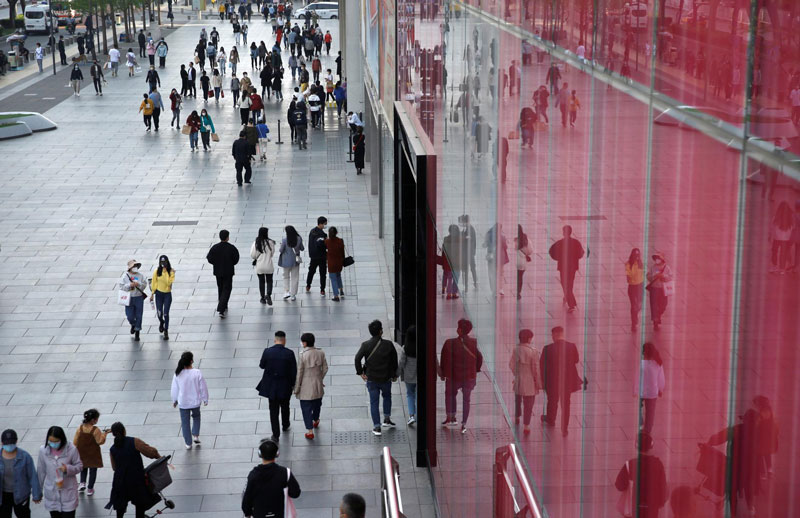
Gaza engineers develop makeshift ventilators to fight COVID-19
Two engineering professors at the Islamic University of Gaza have used air filters, sensors and fuses to build makeshift ventilators to add to only 56 that the region currently has to serve a population of 2 million. The devices have been built to work on both AC and DC systems, enabling them to operate despite the currently unstable electricity supply. The ventilators are being tested over the coming weeks to see whether they can be viable substitutes.
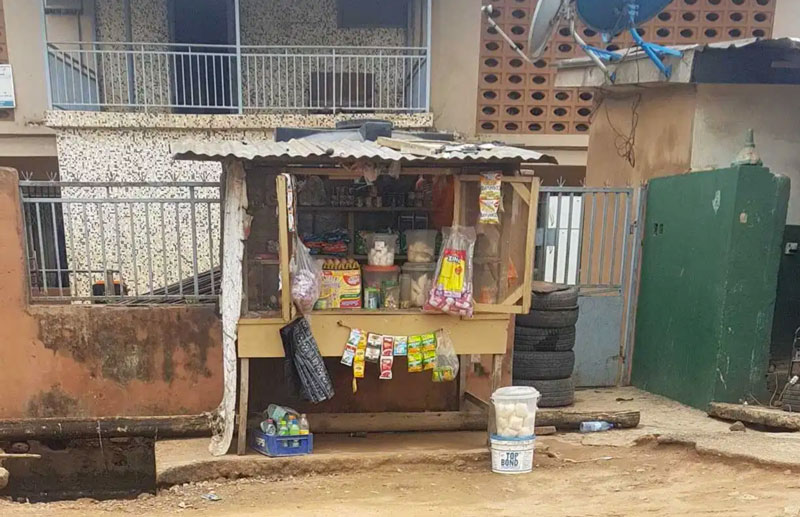
3 April 2020
International COVID-19 coalition launched
A group of scientists, physicians, funders and policymakers from more than 70 institutions and 30 countries have launched an international coalition to speed up research into vaccines and therapeutics in resource-poor countries to fight COVID-19. The coalition, announced today in The Lancet, have also called for specific commitments to ensure that the vaccines and treatments are available and affordable in low- and middle-income countries.
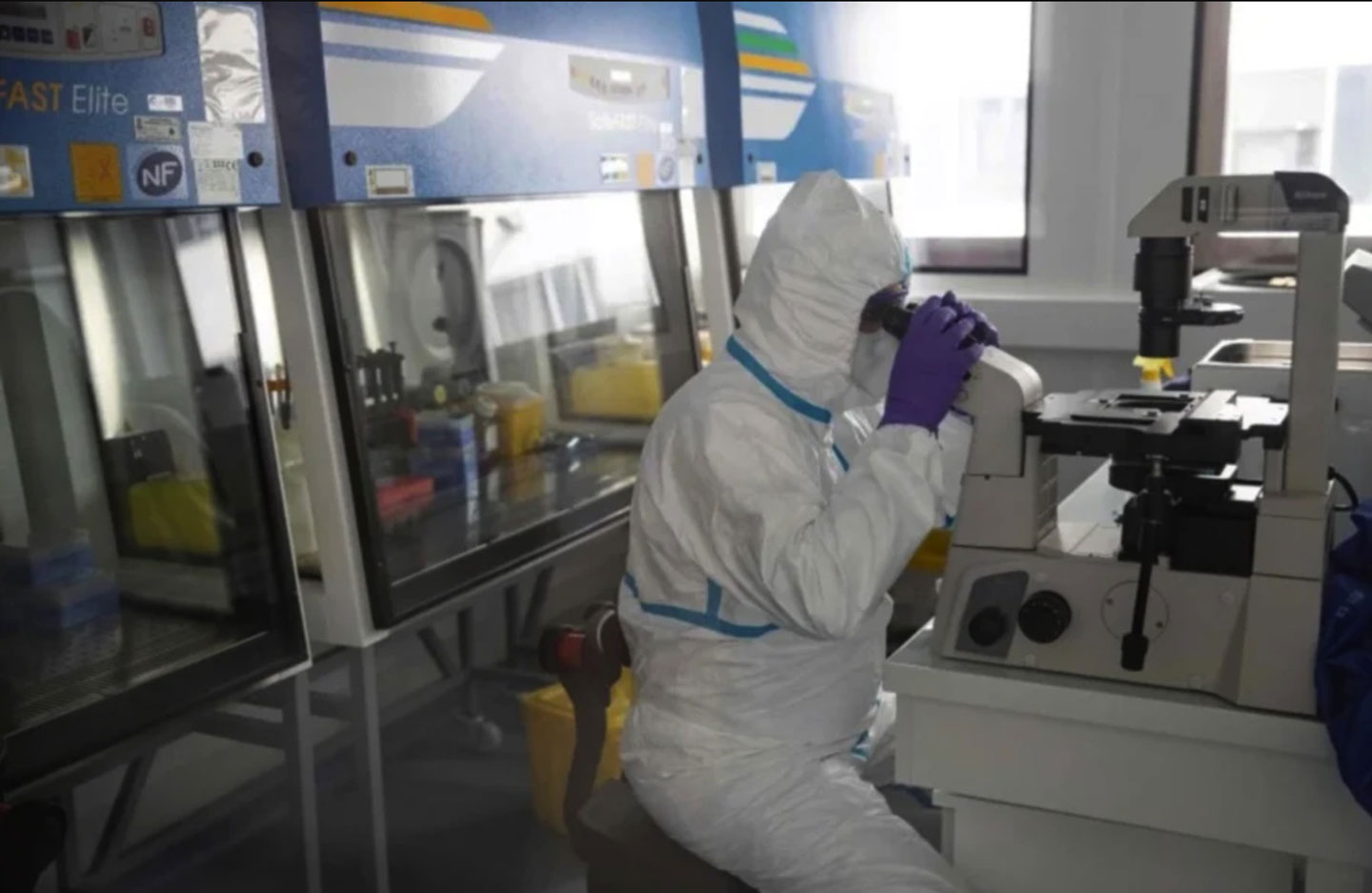
The COVID-19 virus could actually be airborne
Mounting research is starting to indicate that the new coronavirus can spread through the air, and not just via respiratory droplets emitted in a cough or sneeze. Respiratory droplets can normally travel about 2 metres before dropping on to surfaces. But research seems to suggest that aerosolisation – the virus being suspended in the ultrafine mist produced when we exhale – is in fact possible, which some scientists say would explain the rapid spread of the virus. It also raises the issue of when to use masks, and WHO is currently reviewing this evidence to see whether to change its guidance.
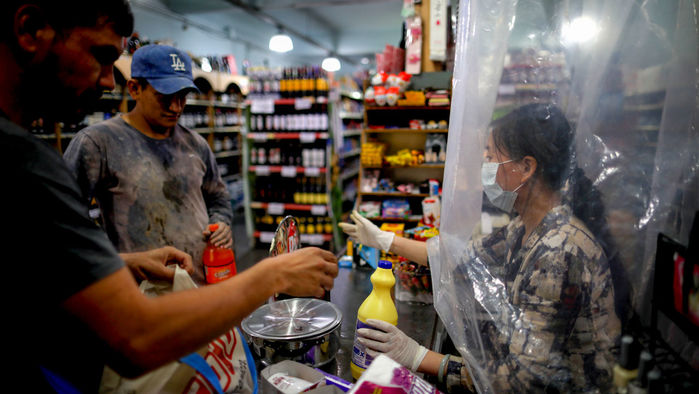
African countries using tech to fight fake COVID-19 news
Governments across Africa are collaborating with social media platforms to fight misinformation about the new coronavirus. The fake news includes social media messages saying that black people don’t get coronavirus or that garlic and lemon can help cure COVID-19. The Nigeria Centre for Disease Control (NCDC) has been given free advertising space on Facebook for information outreach about the pandemic; this space has been given to public health authorities in 11 other African countries too. Twitter has been tweaking its algorithms to bring to the forefront medical information from authoritative health sources, including five across Africa.
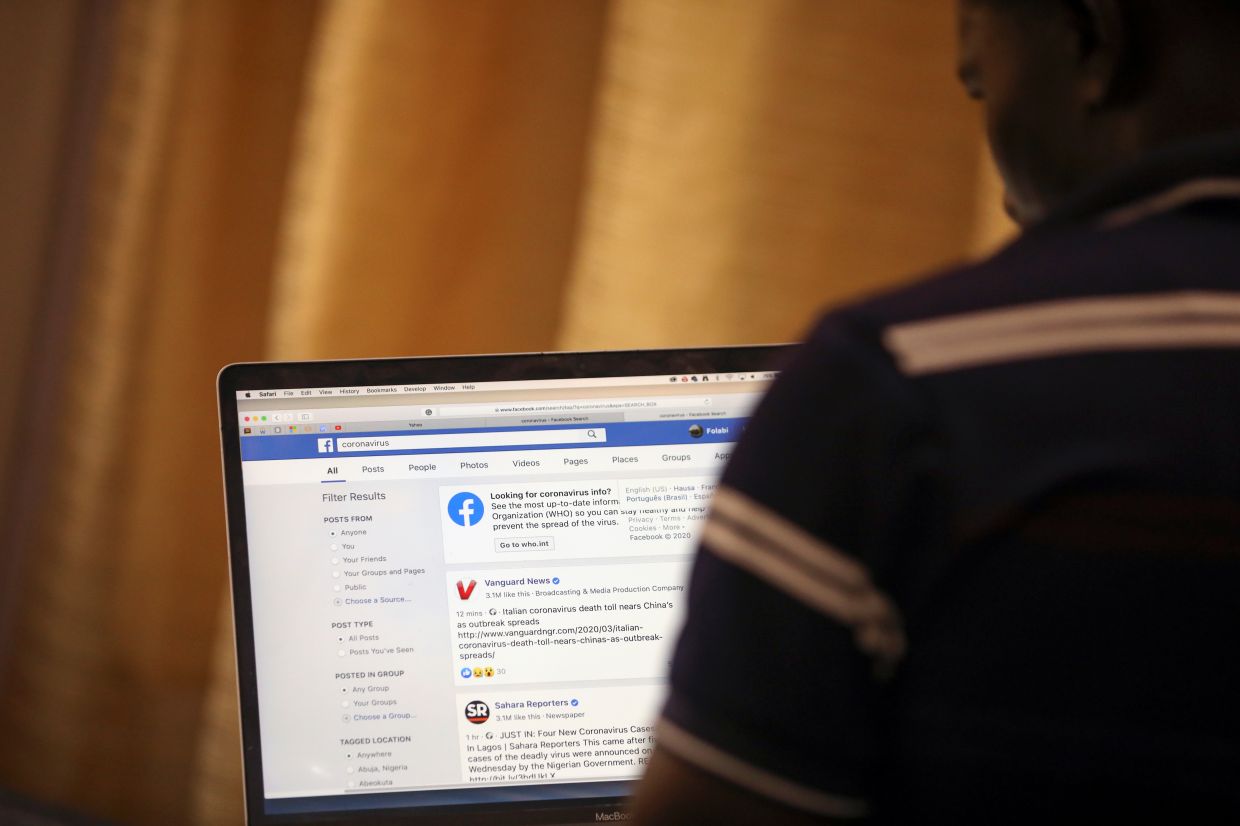
2 April 2020
Indigenous communities struggle to lockdown against COVID-19
Low-income countries already face a fearsome threat from COVID-19, given their inadequate health systems and population overcrowding. But indigenous communities are among the most vulnerable to the new coronavirus as they often have no access to medical services at all. Some indigenous communities in remote areas have already taken steps to isolate themselves. The Kankana-ey-Igorot people from the Philippines have a traditional method of lockdown called ‘ubaya’ in times of epidemics, which so far seems to have protected the communities using it. But indigenous groups such as the Maasai of southern Kenya are pastoral and their way of life means they have no borders to seal, and unlike richer Kenyans, are not able to stockpile food.

India launches COVID-19 tracker based on phone’s location data
India has launched a coronavirus tracker app called Aarogya Setu (which translates as ‘A bridge of health’). When someone installs the app on their phones, the tracker uses the phone’s location data and Bluetooth connectivity to assess whether they’ve been near (within 6 feet) someone infected with COVID-19, by looking through a database of known cases. The app tells the user whether they are at high risk of infection, and offers a list of testing centres. This information, and whether or not the person ends up testing positive for coronavirus, is also shared with the government.

Somali muslim leaders to spread messages about hygiene and sanitation
In Somalia ministries of religious affairs, health and information have been working with Muslim leaders to transform teachers and mosque Imams into health promoters to stop the spread of COVID-19. They plan to use loudspeakers at crossroads and other places where people congregate to share information on how to stop the spread of the virus through hand-washing and physical distancing. They acknowledge, however, that for people in Somalia’s overcrowded refugee camps, social distancing will often be an “abstract concept”. Nevertheless, as religious leaders hold a key position in Somalian society, they will use their position to encourage people to take whatever measures they can to stop the spread of the coronavirus.

1 April 2020
Coronavirus pandemic threatens Bangladesh garment industry
The jobs of over 1.2 million garment workers are at risk in Bangladesh, with companies around the world cancelling more than US$ 2 billion-worth of orders since the start of the pandemic. Bangladesh is the world’s second largest garment producer after China. The Finance Minister has warned that the country could lose 1.1% of its GDP as a result of COVID-19.

Botswana reports first death from coronavirus
President Mokgweetsi Masisi has declared a state of emergency in Botswana. The country reported its first death from COVID-19 on Tuesday night, with three other confirmed cases recorded so far.

1.5 million Israelis using voluntary coronavirus monitoring app
A mobile app that alerts users who have come into contact with a coronavirus patient has been downloaded by over 1.5 million Israelis in the last week. Over 50,000 app users have already reported going into self-quarantine and several other countries have approached the Israeli government expressing their interest in the app.

31 March 2020
Indian migrant workers sprayed with disinfectant
An investigation is underway in India after migrant workers returning home in the northern state of Uttar Pradesh were sprayed with a chemical solution to avoid the spread of COVID-19. They were fully clothed, and some were still carrying their luggage as they were soaked in sodium hypochlorite that can be hazardous to human health. Millions of migrant workers have been leaving India’s main cities during the three-week lockdown, which has left many of them out of work. The exodus has led to overcrowding at bus and train stations.

Nigeria tech start-ups are helping provide testing and medical supplies
The country’s tech startups are stepping up in the fight against the coronavirus pandemic in a variety of ways. A fledgling genomics research startup called 54gene has launched a US$ 500,000 fund to boost local testing capacity for coronavirus, which is badly needed in the country. Also a startup, called Lifebank, that identifies blood and delivers it to patients is now tracking critical medical equipment for COVID-19 treatment and has created a national register of hospitals with working ventilators and respirators. Meanwhile, a hotel booking platform called Hotels.ng is collaborating with hotels to create isolation centres across the country.
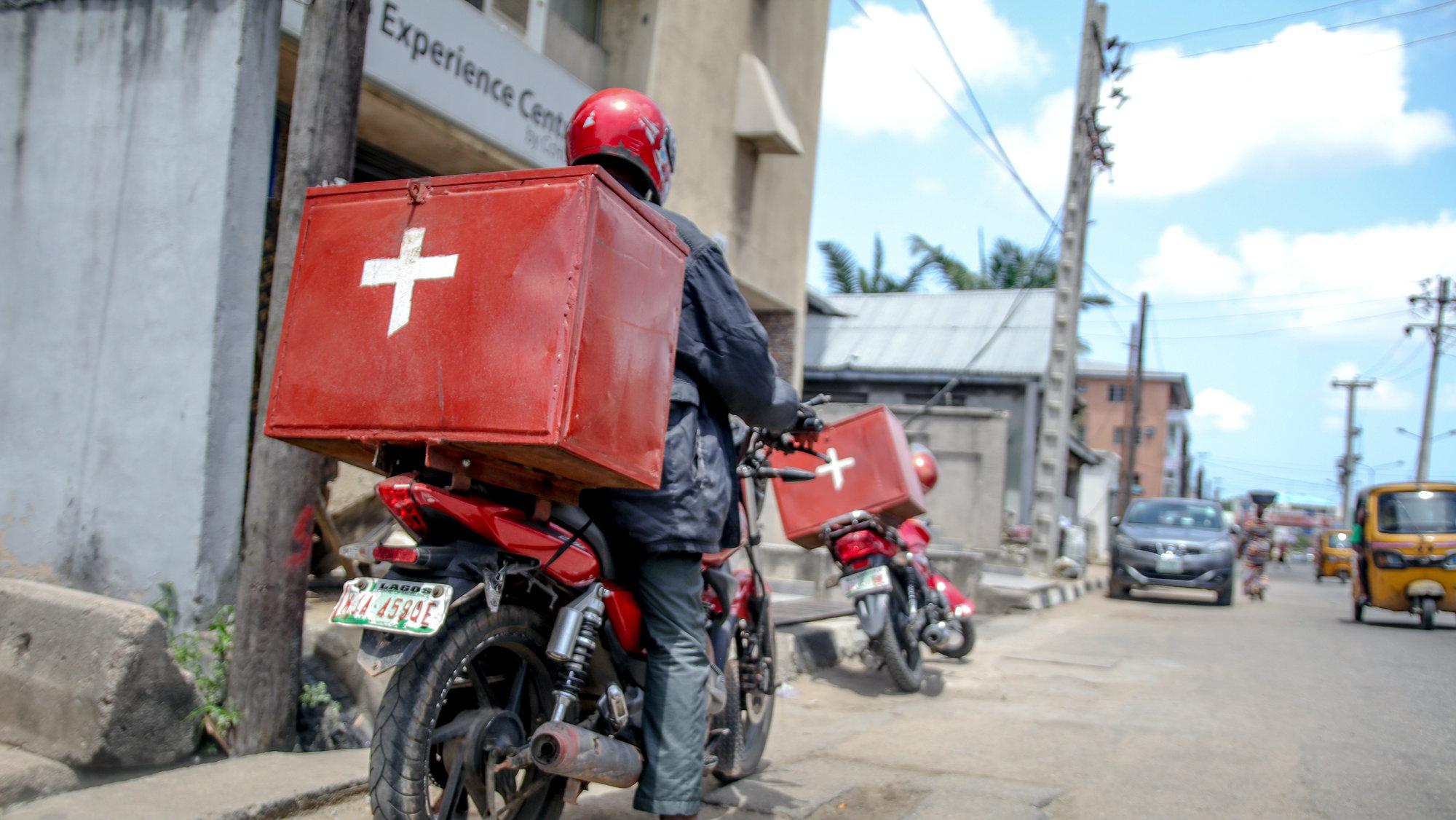
Syria’s COVID-19 cases are 'tip of iceberg', says UN aid chief
Although Syria has only had ten confirmed cases of COVID-19 and one death, the situation is expected to rapidly spiral out of control. The devastating effect of conflict in the country has meant that 50% of its hospitals and primary health centres are not functional. Massive population displacement, with hundreds of thousands living in overcrowded camps with poor water and sanitation, and no medical supplies, put Syrians at high risk of infection with the COVID-19 virus.

30 March 2020
7 million go into Ghana lockdown
Ghana has become the latest country in sub-Saharan Africa to introduce a COVID-19 lockdown. Affecting 7 million people living in its two largest cities, the capital Accra and its second city Kumasi, the lockdown came into effect at 1am on Monday. Several other countries in the region have also introduced measures to prevent its spread, with some closing land borders or introducing curfews, most of which are likely to seriously affect its informal sector, which makes up 50% of the region’s economy.

Fake COVID-19 news is spreading like a virus in Nigeria
It’s not just the spread of COVID-19 health officials are battling with in Nigeria, but also the spread of fake news about the pandemic. Officials are concerned that false information about COVID-19, spread via fringe websites, blogs and social media, is now undermining medical advice, by instead offering fake cures, inciting panic and promoting hate speech against Chinese people

No water, no room: Containing an outbreak in South Africa
With modelling forecasting South Africa to have 20,000 new cases of COVID-19 by May, the government has stepped up efforts to reduce the spread of the virus. In addition to a 21 day lockdown and a ban on the sale of alcohol and cigarettes, the government is now introducing new measures to restrict people’s movement. With fewer than half of households having access to running water and many people living in crowded townships and dependent on jam-packed public transport, the concern is that other mitigation methods like handwashing and social distancing won’t be enough.

26th March 2020
South Africa to use WhatsApp group to share information on coronavirus
A South African non-profit foundation that runs a WhatsApp service on maternal wellbeing for the country’s health department, has set up a similar programme to keep people informed about COVID-19. Since the start of March, the service has 2 million users and 100,000 enquiries an hour. The country, which has already restricted travel, closed schools and banned large gatherings, has high numbers of people with immune systems that are compromised by HIV/AIDS and TB, for whom the new coronavirus could be deadly. People who send the word “hi” to the service run by the organisation called Praekelt receive information on the latest news about the virus, symptoms and where to seek medical care.

Coronavirus in Venezuela: “We have no masks, no water, no electricity”
The arrival of COVID-19 in Venezuela comes, as with many low- and middle-income countries, on the back of food and medicine shortages, inadequate water and sanitation systems, and high levels of poverty. For many, the standard advice for avoiding infection with COVID-19 – washing hands often and wearing masks when necessary – are impossible to implement. Hospitals, meanwhile, have no supplies, no beds and often no medical staff.
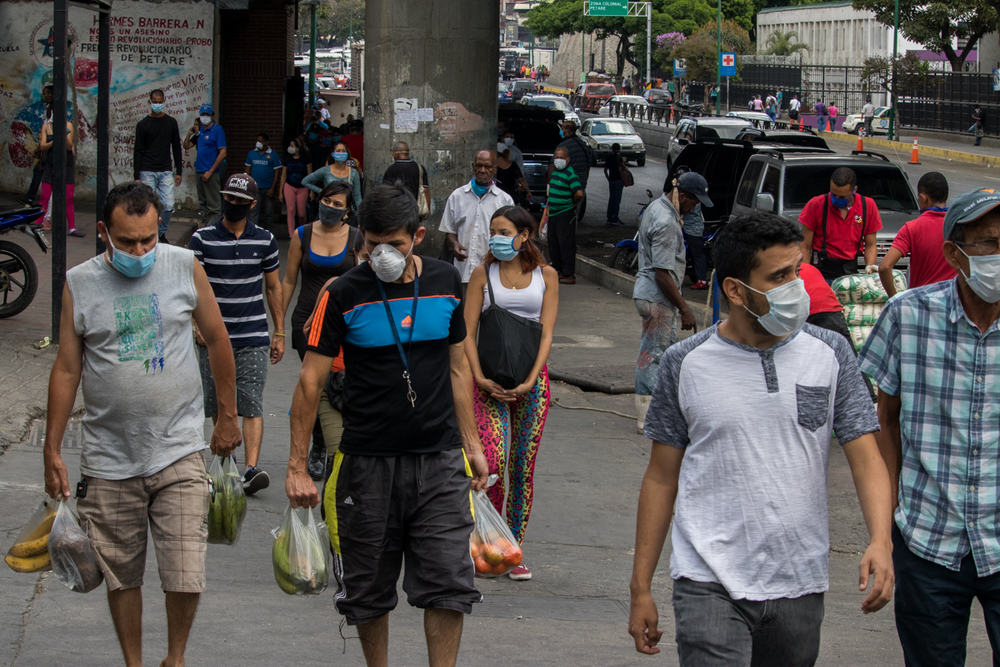
India could have up to 2.2 million COVID-19 cases by mid-May
By mid-May, 2.2 million people in India could be infected with COVID-19 if it continues to spread at its current pace, according to estimates (as yet not peer reviewed) by a group of researchers, including a team from Johns Hopkins University. While India, which has a population of 1.4 billion, has taken preventive action to stop the spread of the virus, the scientists stress that the country needs to go much further. This includes the massive expansion of testing (and making this free of charge), setting up mobile laboratories to reach rural parts of the country and providing a universal basic income to ensure that millions don’t fall into poverty that they may never recover from.

25th March 2020
How Singapore has slowed the spread of COVID-19
A study of the new coronavirus in Singapore – which has managed to stop the spread of the virus despite having imported cases - has found that putting a series of social lockdowns in place, including closing school - will have the biggest effect on stopping the spread of COVID-19. The country has already had experience in dealing with a serious threat from another coronavirus, the 2003 severe acute respiratory syndrome coronavirus (SARS-CoV) outbreak.

Destruction of the environment and wildlife habitats to blame for COVID-19
Three out of four of all emerging infectious diseases come from wildlife. The degradation of the planet and of wildlife habitats because of mining, farming, housing or industrial production has led to the crisis we are now experiencing with COVID-19, says the UN’s environment chief, Inger Andersen. The environmental damage combined with the illegal global animal trade is allowing zoonotic infections – those that come from animals – to thrive and infect people more often.
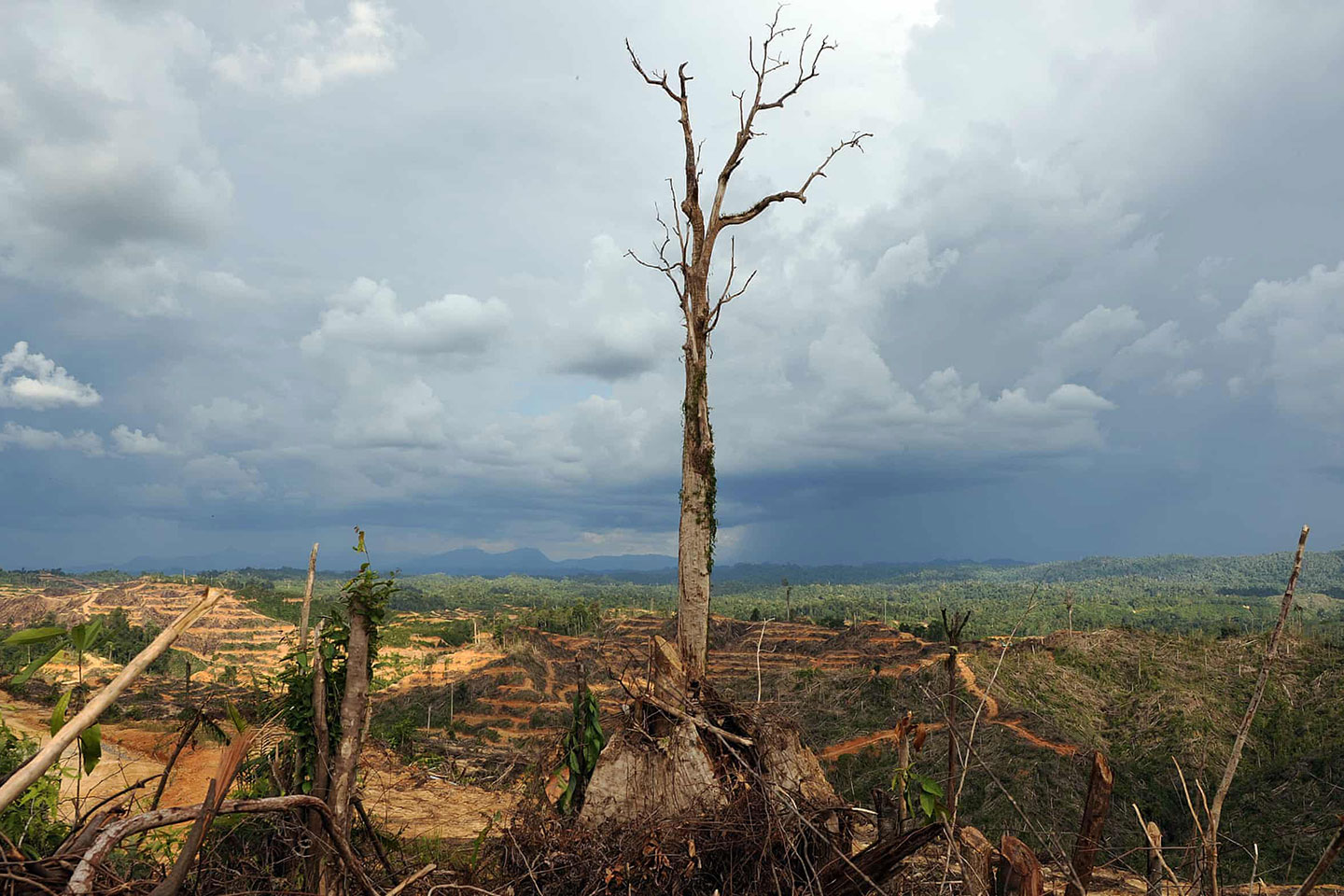
Low and middle countries stockpiling antimalaria drugs
Low and middle countries including Algeria and Indonesia are stockpiling the drugs chloroquine and hydroxychloroquine after evidence emerged that they could be used to treat infection with the new coronavirus. India, meanwhile, has announced it will ban export of the drug. Other medicines being investigated for treatment of COVID-19 are antivirals used against flu and those against HIV.
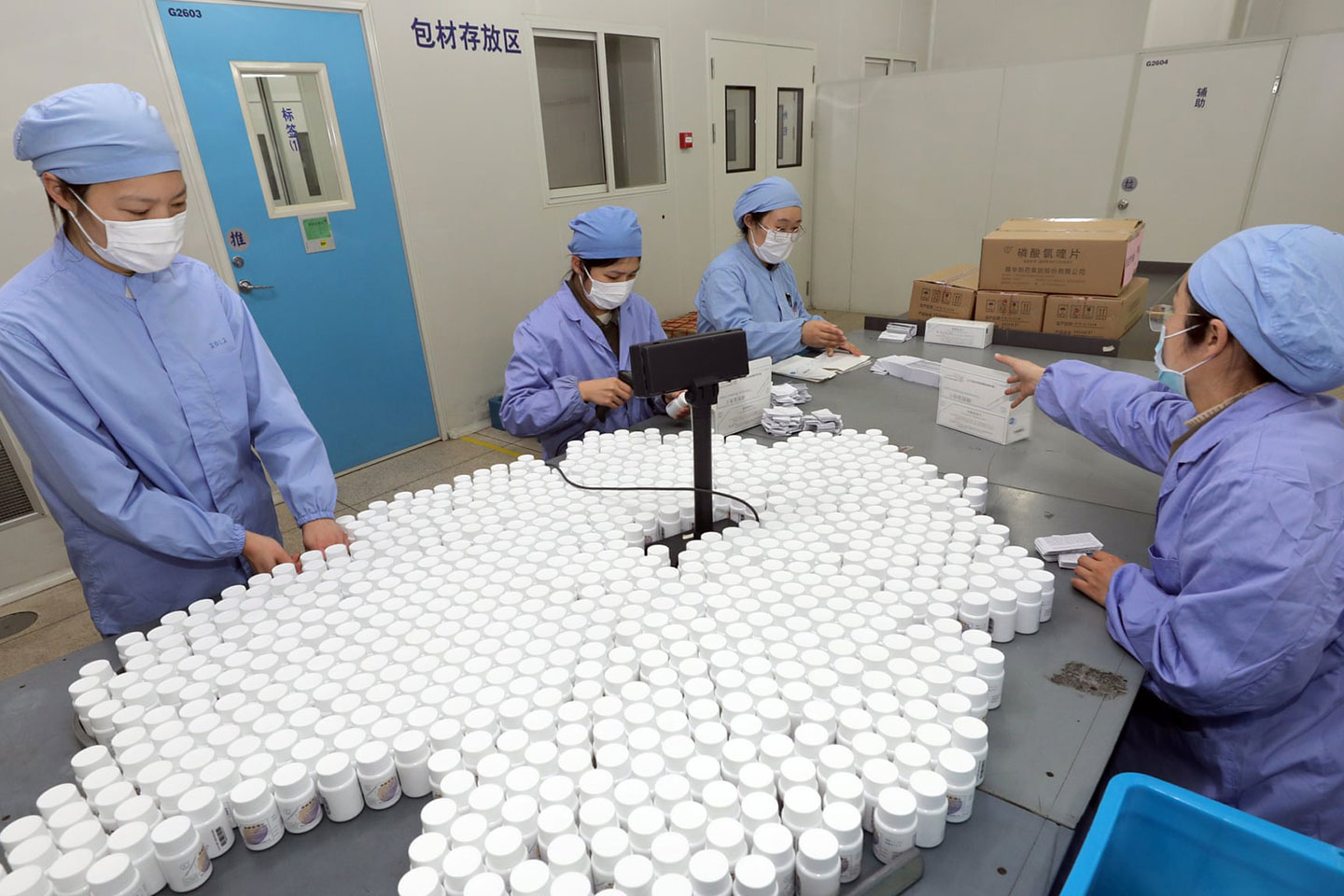
24th March 2020
African nations going into lockdown from the coronavirus pandemic
Half of all African countries have now reported cases of COVID-19 and though the pandemic is not affecting Africa as much as other continents, countries in Africa are responding rapidly to try to control the pandemic. The most affected countries are implementing strategies to stop the spread of COVID-19, including South Africa, which is introducing a 21 day lockdown. Algeria, Egypt, Tunisia and Senegal are also badly affected and using a variety of strategies such as enforced lockdown and contact tracing to curb the pandemic.

UN to create coronavirus fund to support low- and middle-income countries
The United Nations plans to create a fund to prevent the spread of coronavirus and support treatment, especially in low-resource countries with weak health systems. The plan comes as the virus is emerging in many low- and middle-income countries, including India, where cases are on an exponential growth.

Most COVID-19 deaths likely to be in older people in low- and middle-income countries
Despite Africa having a young demographic - 1 in 5 Africans are aged 15-24 years - 69% of the world’s over-60s live in low- and middle-income countries, where health systems are weak and the coronavirus pandemic could end up having the biggest effect. Many older people live in nursing homes or institutions that are unregulated, and where an outbreak of COVID-19 could be deadly. Older people also face having less access to health services and support.

23rd March 2020
COVID-19 growth potentially levelling off in Germany
Lothar Wieler, the president of the Robert Koch Institute, said today that the upwards trend of COVID-19 cases could be starting to level off, but that they would only be sure once data from over the weekend was submitted. Of the 24,859 cases of coronavirus in Germany so far, only 97 have died – a much lower death rate than in neighbouring countries in Europe.
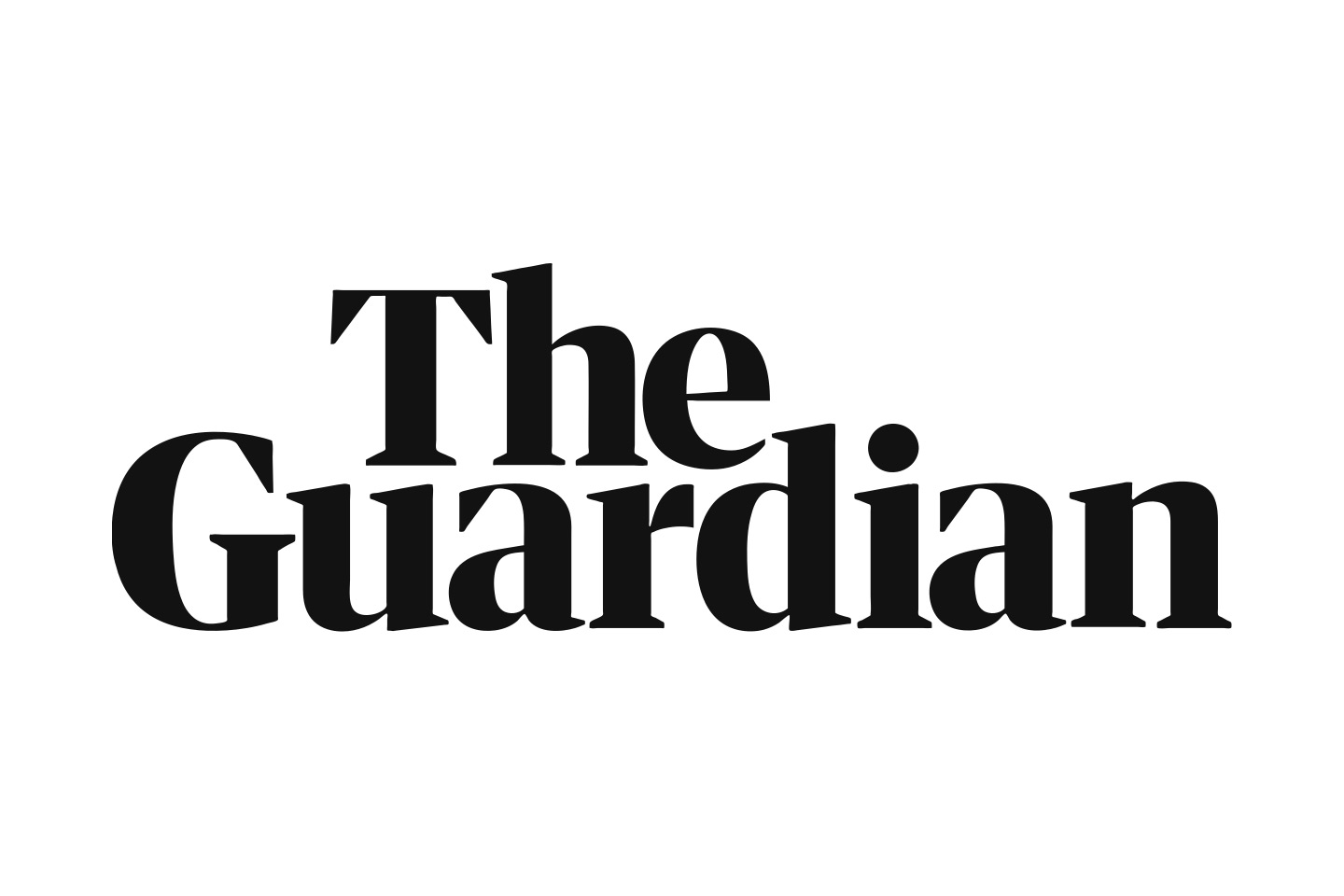
Wuhan lockdown easing slightly for residents
The Chinese city at the centre of the COVID-19 pandemic had been in lockdown for 2 months since 23 January, and residents have cautiously started going about normal life. Only people living in compounds that have been deemed coronavirus-free have been allowed out. The rest of China is slowly back to normal as well, and any new cases reported have been imported, according to the country’s National Health Commission.
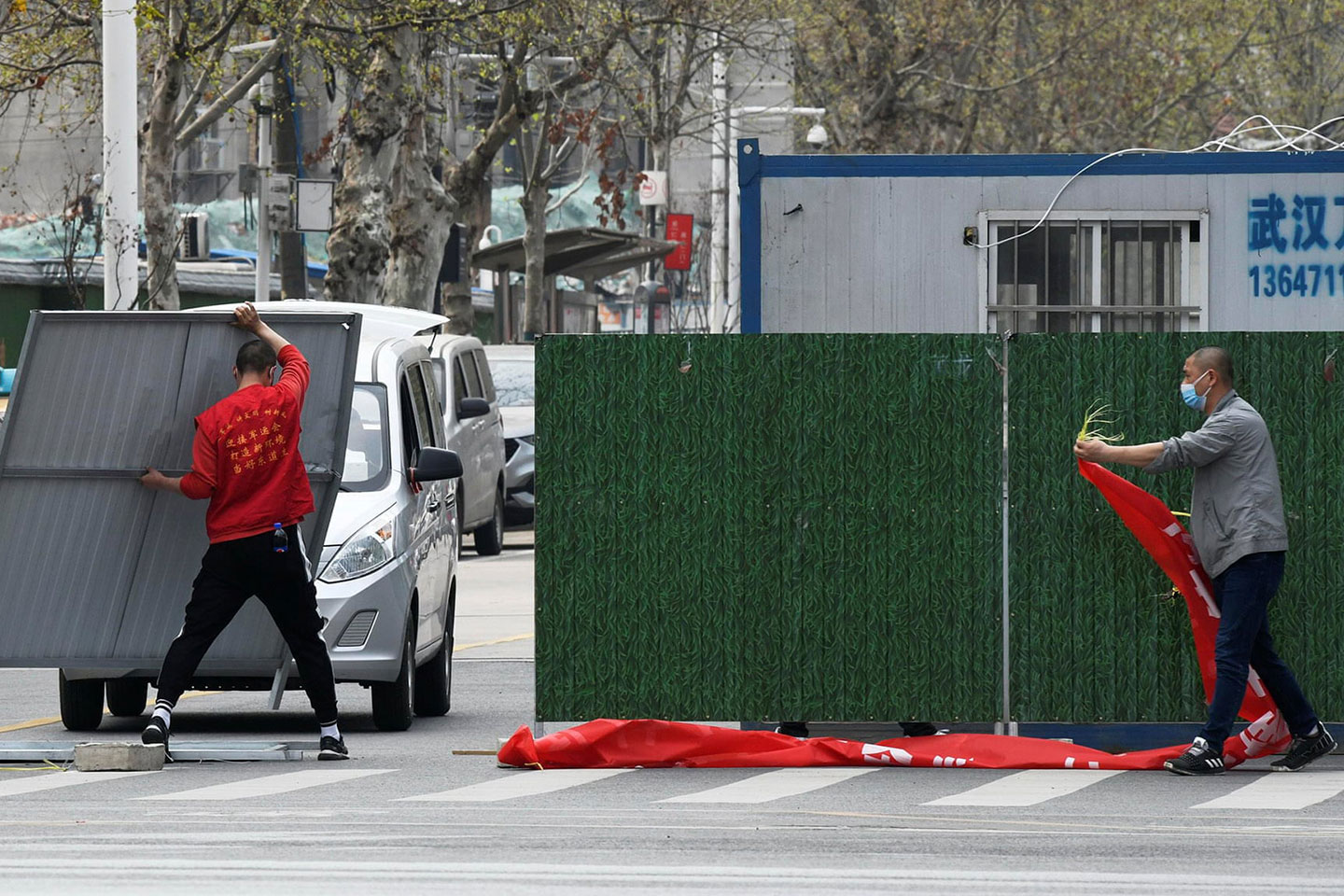
Jails around the world are releasing prisoners to stop COVID-19 spread
Practising social distancing is clearly impossible in a crowded prison cell, and many countries including the UK and USA are responding in unprecedented ways to stop the coronavirus pandemic from taking hold. Low-level offenders or prisoners who are extremely sick or old are being released in an attempt to save lives.
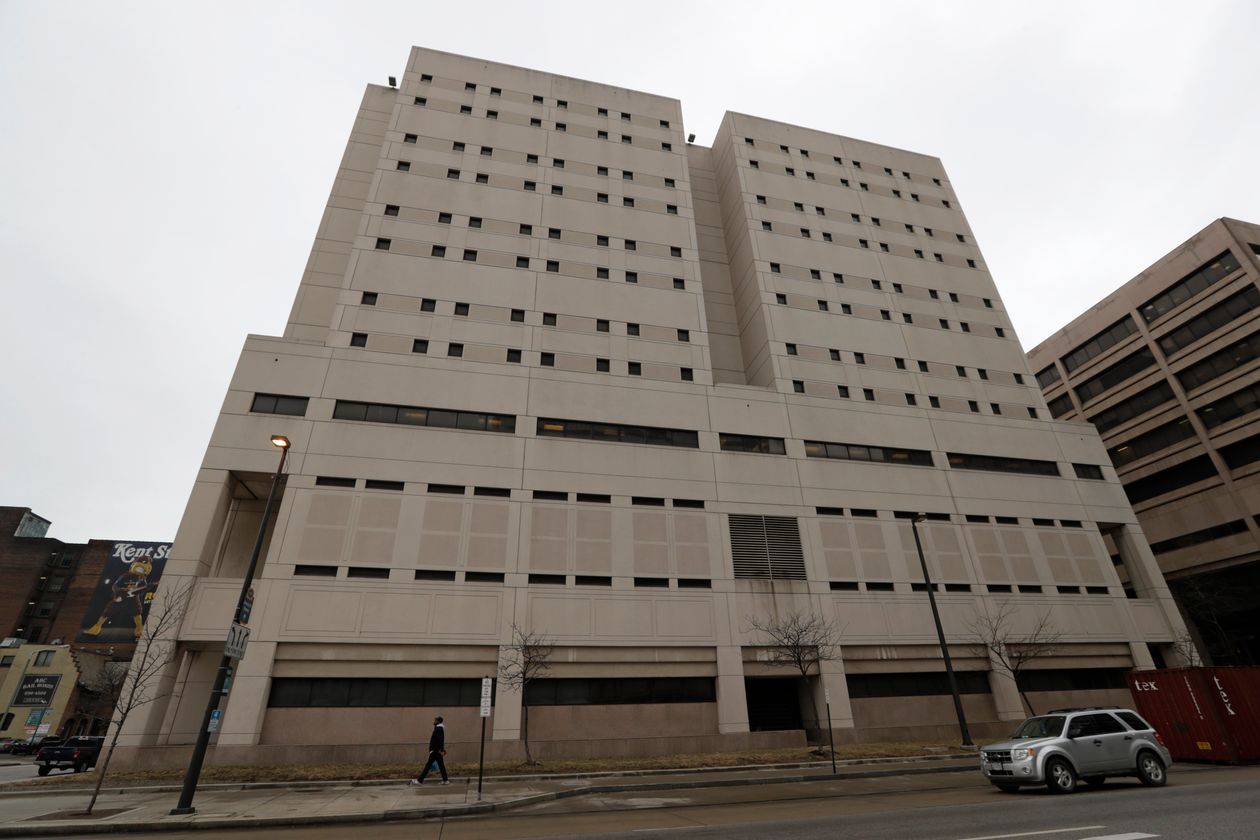
US CDC launches a coronavirus self-checker bot called Clara
The U.S. Centers for Disease Control and Prevention has launched a bot called Clara to help people make decisions about what to do if they have potential symptoms of COVID-19. The bot is not a diagnostic tool, but intended to guide people as to when to seek medical care. The UK’s NHS has a similar service called 111 online to identify whether or not they need medical attention.
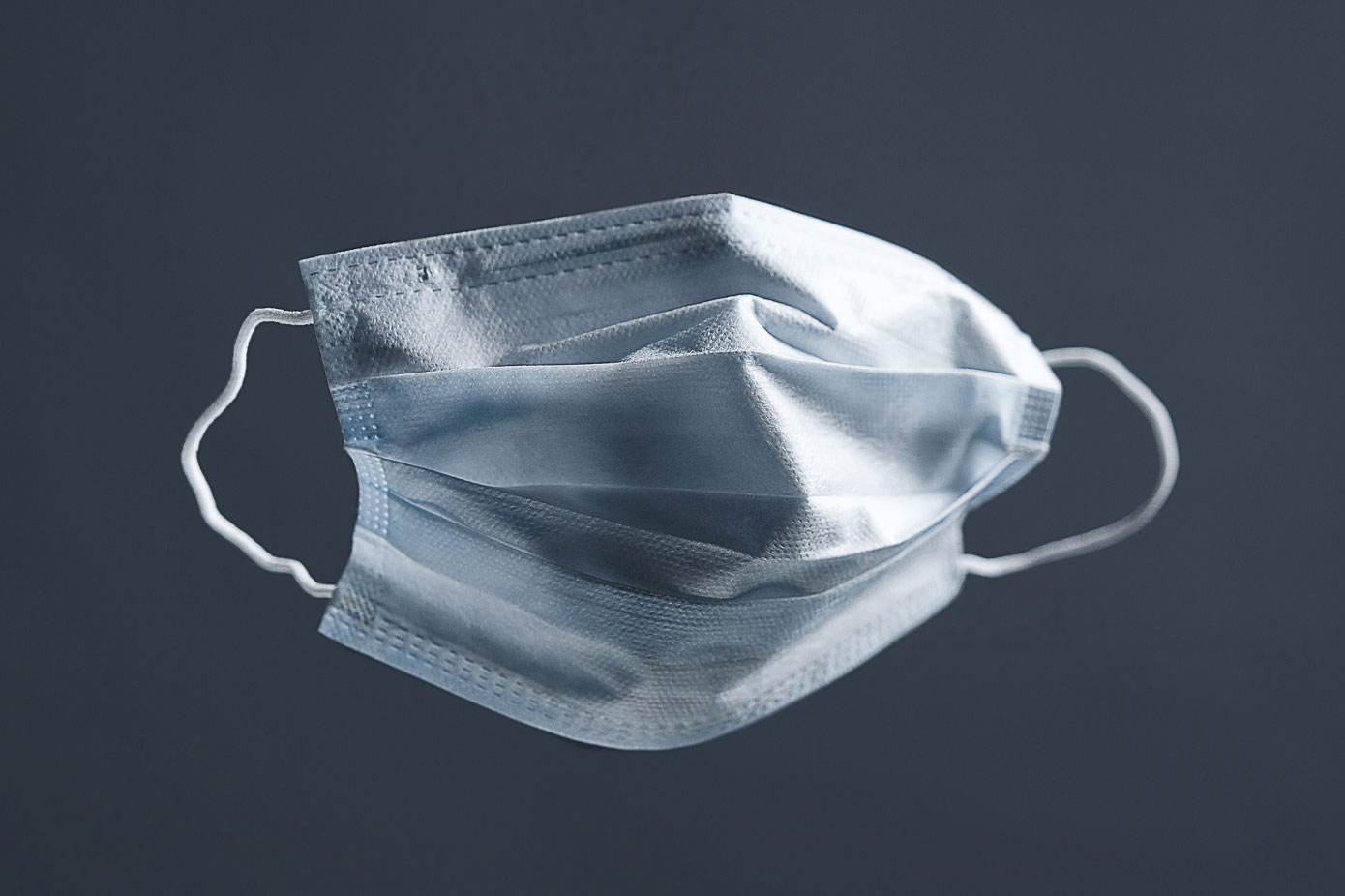
The loss of smell or taste is emerging as an important COVID-19 symptom
Losing the sense of smell or taste, even in the absence of any other symptoms, is turning out to be a characteristic of infection with the new coronavirus. Some people with these symptoms have no nasal congestion either, which might usually explain a loss of smell. Reports of the symptoms have been coming in from all over the world. In a study of 2,000 coronavirus patients from South Korea, around one in three people had lost their ability to smell.
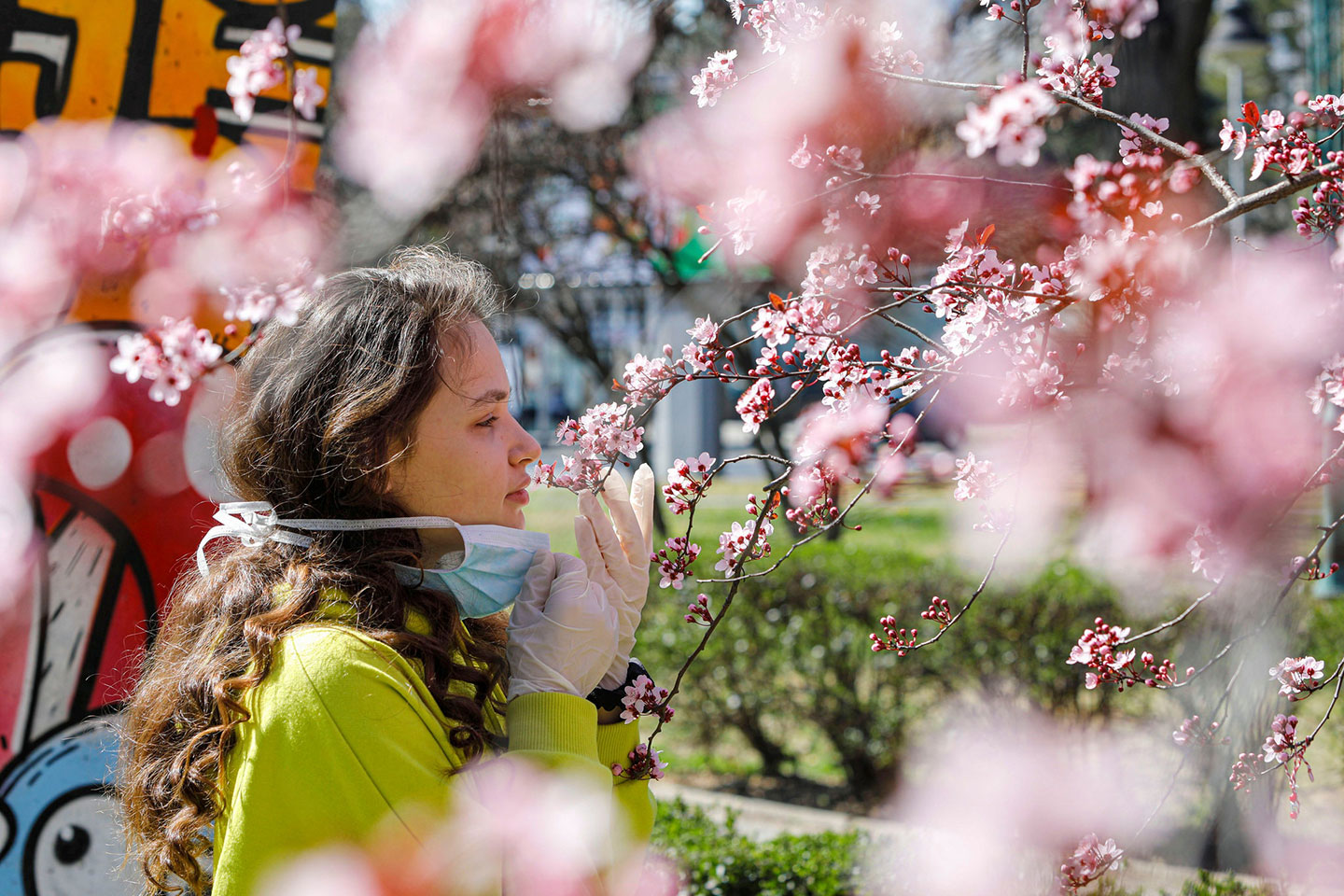
19th March 2020
China and South Korea have flattened the coronavirus curve
This graphic story shows how China and South Korea, through stringent control measures, have drastically reduced the number of new COVID-19 infections. Neighbouring Singapore, Hong Kong and Taiwan have also kept numbers down through strict monitoring and early action.

Italy says 99% of those dying of coronavirus had a secondary infection
Of the more than 2,500 people who have died in Italy from the COVID-19 pandemic, more than 75% had high blood pressure, about 35% had diabetes and a third suffered from heart disease. Only 0.8% of those who died had no underlying illness. The average age of those who have died from the virus in Italy is 79.5.

Fake news is a battle in communicating about COVID-19
The misinformation – through memes or WhatsApp groups – is rife, with some claiming that sunshine, ice-cream or gargling with salty water can kill the virus, all of which are untrue. Some of these claims have been falsely attributed to UN agencies, such as UNICEF and WHO. These claims, say experts, can lead to greater paranoia, fear or stigmatisation, or complacency.

WHO to launch multinational trial to find COVID-19 treatments
The World Health Organization is to launch a multiarm, multicountry clinical trial for potential coronavirus therapies to kickstart the global hunt for drugs to treat the new coronavirus. Ten countries are due to take part in the trial: Argentina, Bahrain, Canada, France, Iran, Norway, South Africa, Spain, Switzerland and Thailand. The trial will test four drugs or drug combinations: the antiviral drug remdesivir; a combination of two HIV drugs, lopinavir and ritonavir; lopinavir and ritonavir plus interferon beta; and the antimalarial drug chloroquine. All have shown effectiveness against the new coronavirus in vitro or animal studies. However a study in the New England Journal of Medicine showed that a test in Chinese patients of Kaletra, a combination of lopinavir and ritonavir was not effective against COVID-19.
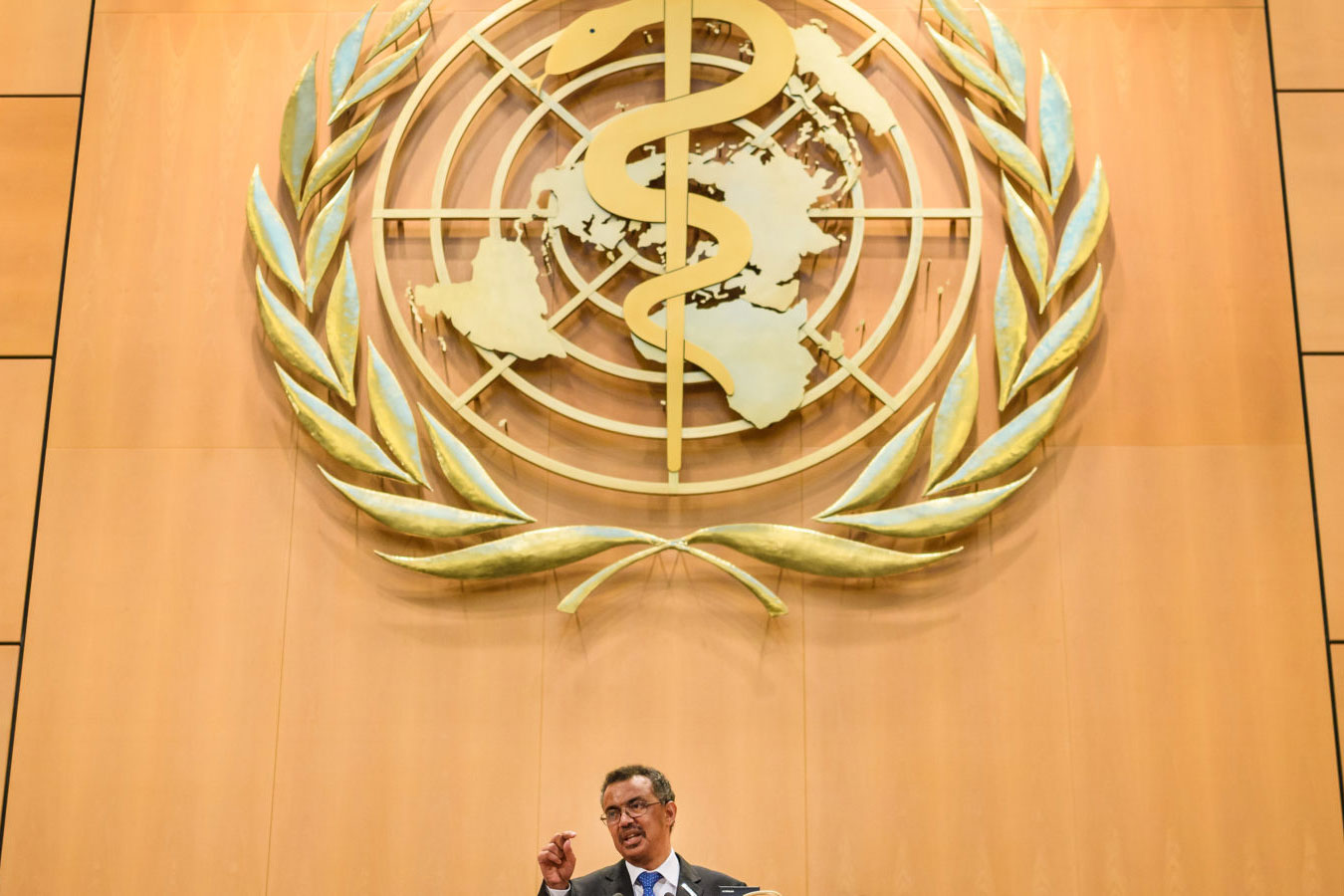
20% of people in US hospitals with COVID-19 are aged 20 – 44 years
One in five people hospitalised with the new coronavirus in the USA are young adults between ages 20 to 44, according to a study by The US Centers for Disease Prevention and Control (CDC)’s COVID-19 Response Team. Although the elderly were most at risk of dying, younger people nevertheless became seriously ill. The researchers add that the limited testing that has happened so far, underlines the importance of surveillance of COVID-19 cases.

18th March 2020
Study of over 2000 Chinese children shows COVID-19 can make some babies seriously ill
So far, children seem to have been the most protected in the coronavirus pandemic, with few deaths. The largest study so far (2143 cases of under-18s that were reported to the Chinese Centers for Disease Control and Prevention) the new coronavirus in children shows that while most children have only a mildness, very young children and especially babies can become seriously ill. About 6% developed a very serious illness and one died.
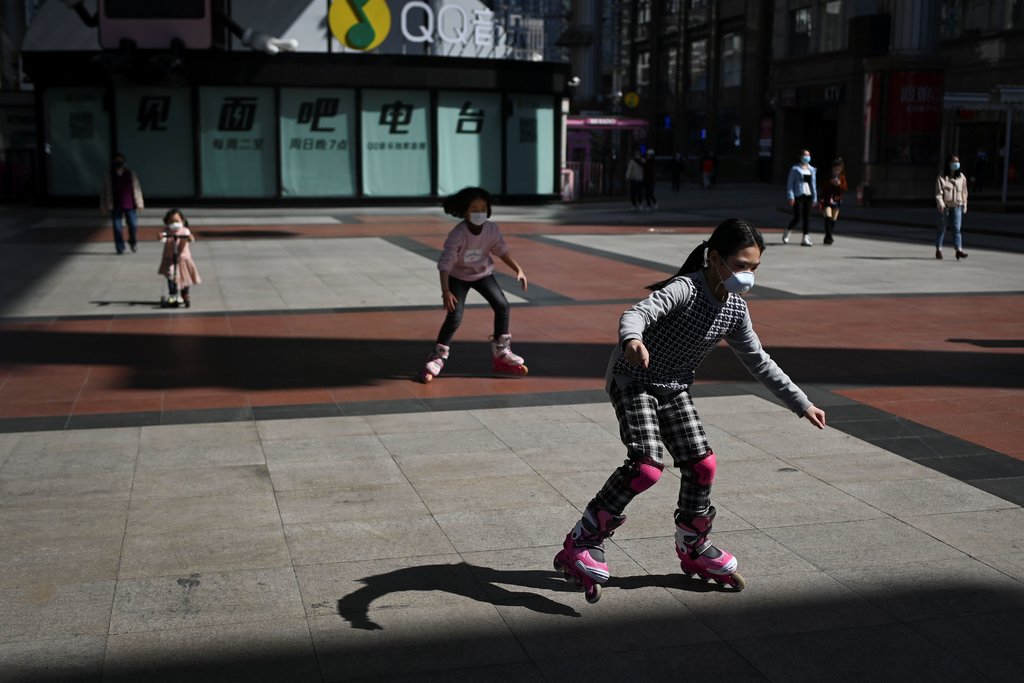
Dutch researchers try TB vaccine to protect health workers against COVID-19
Dutch scientists are to test whether the BCG vaccine could protect healthcare workers against coronavirus, since is known to stimulate the immune system and may lead to milder symptoms in healthcare workers who do get infected. The BCG vaccine already seems to boost immune systems to protect people against the flu. The experiment will mean randomly giving 1000 workers either the vaccine or a placebo. If the vaccine appears to have an effect, all healthcare workers will be given the option to have the vaccine.
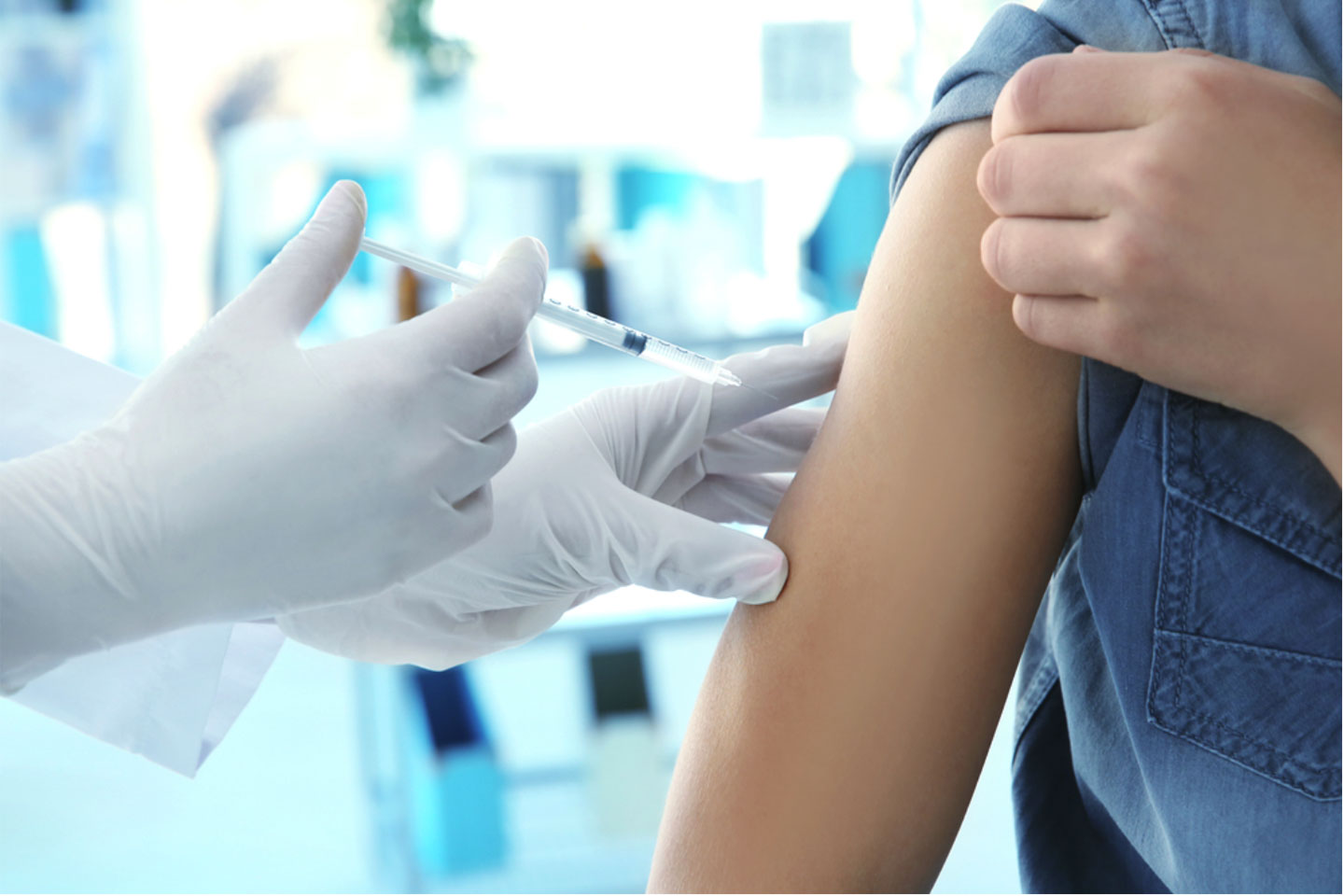
Health workers getting sicker than expected from the new coronavirus
The COVID-19 virus is making healthcare workers much sicker than other patients, even when they are young. Frontline health workers are at a higher risk of coming into contact with the virus, but experts wonder whether they someone get a higher dose of the virus. This could seriously threaten the coronavirus response even more – as it is, healthcare systems are already expected to be overwhelmed far beyond their surge capacity.
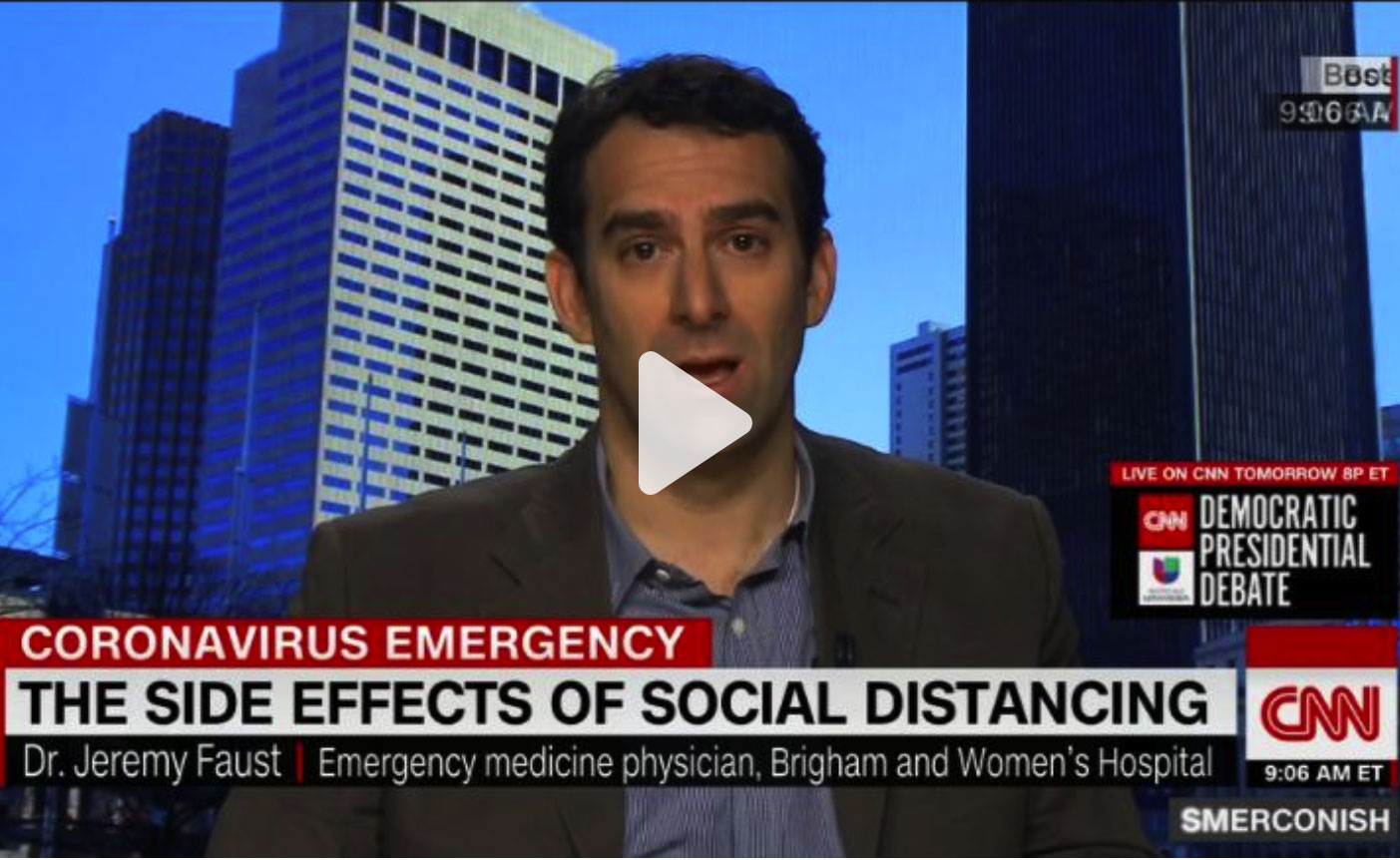
Early control response vital in stopping COVID-19
A model simulation by infectious disease researchers at the University of Southampton, UK, shows that if China had put in place its control measures a week earlier, it could have prevented 67% of all cases there. If the country had started 3 weeks earlier (from the beginning of January, when the virus was identified), the overall infections could have been cut by 95%. These findings could serve as a warning to countries who have been slow to put stringent control measures in place. Cities that suspended public transport, closed entertainment venues and banned public gatherings before they even saw a single case of COVID-19 case had 37% fewer cases than cities that didn’t implement such measure.
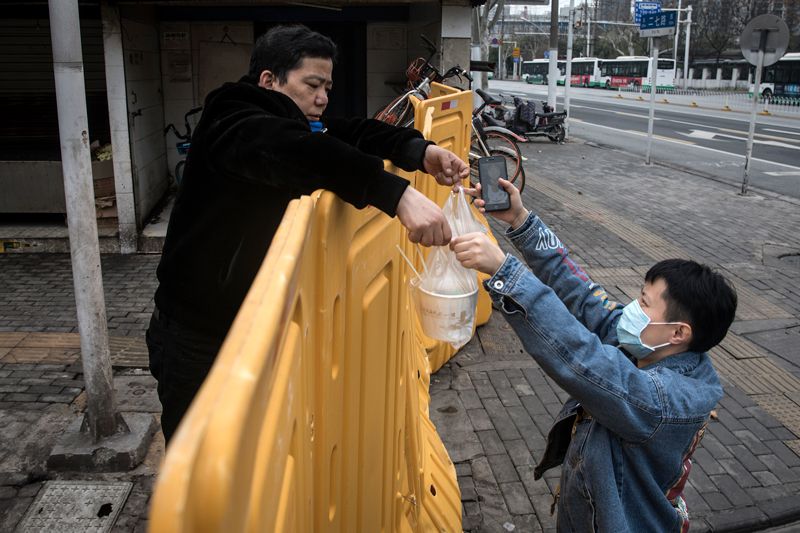
Despite India’s population of 1.3 billion, the coronavirus has not got a major foothold
India’s low number cases could be because it was one of the first countries to close its borders, canceling visas and denying entry to most foreigners. The population is also younger than other countries and the weather is warmer than Europe, though it remains to be seen whether these are protective factors. The fact that antibiotics are also dispensed without prescription is normally a major red flag in driving antibiotic resistance, but in this case it may actually treat secondary infections and therefore be protective against the coronavirus.

16th March 2020
Many of Iran’s COVID-19 deaths are under-40s
Iran has reported nearly 14,000 cases and 724 deaths, and 15% of deaths were in people younger than 40 years and otherwise healthy, far higher than the proportion seen elsewhere in the world, where most deaths were in the elderly. The reason behind this currently remains unclear. The country has so far had the worst outbreak of any country in the Middle East.
![Image from Aljazeera article – Members of a medical team spray disinfectant to sanitise an outdoor area at Imam Reza's Holy Shrine in Mashhad [WANA via Reuters] Image from Aljazeera article – Members of a medical team spray disinfectant to sanitise an outdoor area at Imam Reza's Holy Shrine in Mashhad [WANA via Reuters]](/sites/default/files/body/2020-03/Coronavirus-kills-Iran-religious-leader-as-death-toll-jumps-again.jpg)
COVID-19 vaccine trials start this week
The first human trials of a COVID-19 vaccine started today on March 16. The vaccine, developed by US company Moderna and funded by the U.S. National Institutes of Health (NIH), will be tested in various doses in 45 healthy volunteers. Inovio Pharmaceuticals is due to start clinical trials on a COVID-19 vaccine next month.
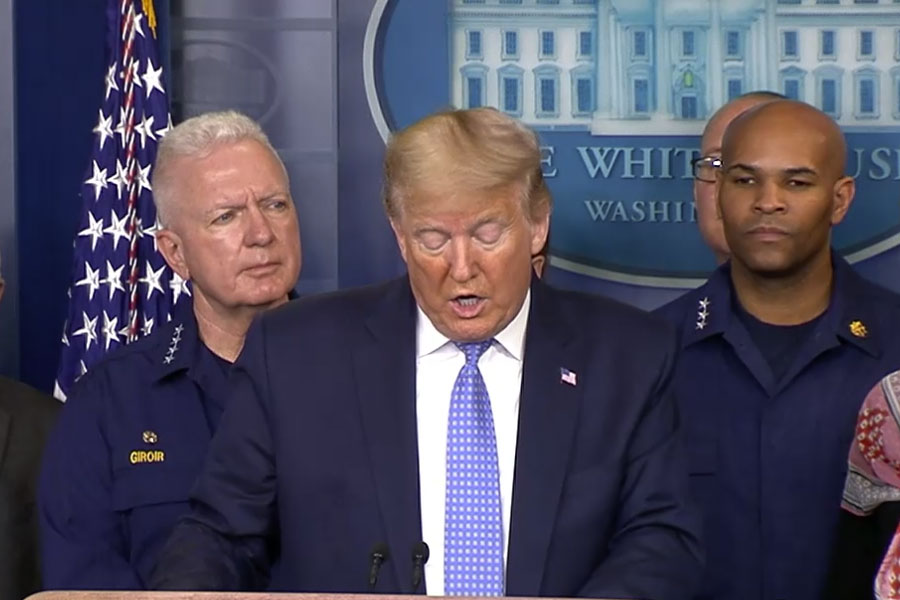
COVID-19 virus can survive on surfaces for up to three days
A study in the New England Journal of Medicine showed that the COVID-19 virus can survive on hard surfaces, such as plastic and stainless steel, for up to three days – much longer than the virus that causes SARS. This could explain the rapid global spread of the vaccine, despite containment efforts.

UK moving from its herd immunity approach to self-isolation of over-70s
Last week, the UK started off with a COVID-19 policy of focussing on protecting vulnerable people through herd immunity (in which people in the population who have already been infected, prevent future spread by developing natural resistance), that seemed in contrast to the rest of Europe’s measures of social distancing. Now, the UK government’s chief science adviser, Sir Patrick Vallance, has said that is a concept and not the government’s policy, and UK Prime Minister Boris Johnson has said he will ban large gatherings this week, which may suggest the UK will follow the rest of Europe soon.
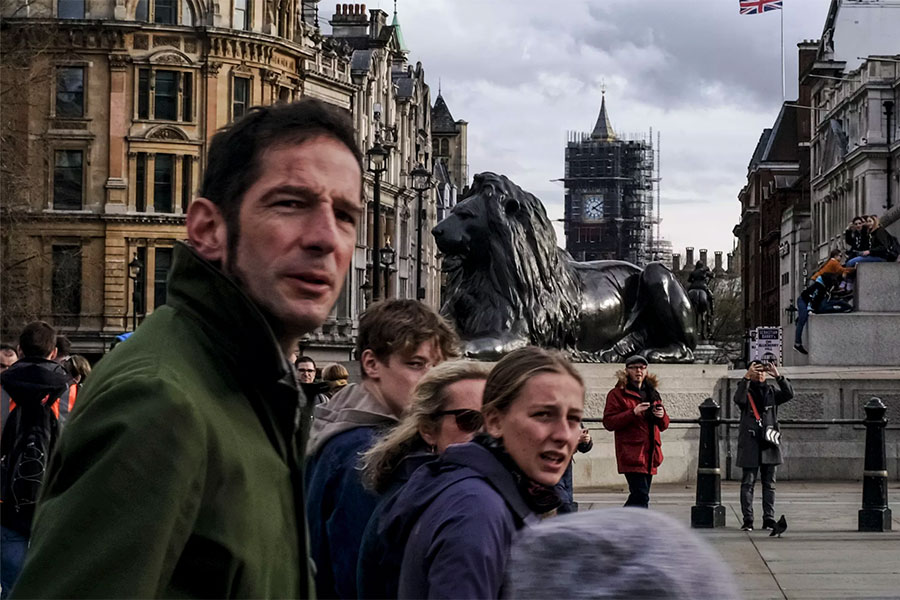
Reported COVID-19 reinfections are more likely to be relapses
While most people who are infected with COVID-19 recover, some seem to get sick again, causing concern over whether they are being re-infected. Infectious disease experts are saying they believe that it is more likely that they are relapsing from their existing infection rather than being re-infected. The thinking behind this is that although this coronavirus is new, the family of viruses have been around for a while and infection generally results in immunity, although nothing is certain at this stage.
